




BY TOM LAUB Lifestyles editor tlaub@lewistownsentinel.com
LEWISTOWN — America celebrates champions.
We celebrate champions in all sports at every level from the youngest levels to the pros. America loves winners. America loves underdogs. America loves the never-say-die attitude that is necessary to win, achieve and survive, whether it applies to a grueling playoff game, a military victory, running a successful business or overcoming obstacles in everyday life. The country was founded on
this principle nearly 250 years ago.
Throughout our history, people from diverse backgrounds and upbringings have achieved success in numerous fields, many fueled by obstacles and early failures. Others have overcome physical challenges such as illness or amputation to reach their goal. The Paralympic Games and Special Olympics produce hundreds of inspirational stories of champions each year.
Champions come in all forms. Their narratives are chronicled in literature and film. One specific journey of a true champion is the story of “Rocky” Bleier. Pitts-
burgh Steelers fans are familiar with the running back who was a part of four Super Bowl-winning teams.
An Appleton, Wisconsin native, Bleier played three seasons of football at Notre Dame before graduating in 1968. He was drafted by the Steelers and later in the same year, by the U.S. Army. He served in the infantry, sustaining several leg wounds while on patrol in South Vietnam. Bleier was awarded the Purple Heart and the Bronze Star but was told by doctors his football career was likely over. Bleier was fighting the odds when he returned to the Steelers in 1970. He was competing for play-
ing time while struggling with his battle-related injuries. He continued to work and he never quit. As the Steelers assembled a roster of talent (including Franco Harris, Terry Bradshaw, Joe Greene, Jack Lambert, Lynn Swann and John Stallworth among others) under Head Coach Chuck Noll, Bleier worked to overcome his limitations. By the mid1970s, he was a starter in the backfield alongside running mate Harris, and helped the Steelers forge a championship dynasty with four Super Bowl championships. His Super Bowl rings alone qualify as champion-caliber. What Bleier overcame to achieve his
LEWISTOWN CABINET……………………… 36
LINDSEY’S DECORATIVE …………………… 20
LOST CREEK SHOE SHOP …………………… 21
MAGNUM MOTORS…………………………… 45
success is a testament to hard work, dedication, sacrifice, mental and physical toughness and the will to keep going. The will of a champion.
Towns and cities can be champions as well.
After Hurricane Agnes in 1972 and the disastrous flood that ensued, much of the eastern United States was faced with massive recovery efforts.
13 COUNTRYSIDE HARNESS …………………… 10 D & R FIREARMS….…………………………… 39
DAVITA DIALYSIS………………Inside Bk Glossy ERNEST HILL KENNELS……………Center Glossy
EXTERIOR DOORS & WINDOWS…Center Glossy
FIRST AREA FED CRED UNION………………10
FISHER BROTHERS BUILDERS…………………27
GUERRINI VENDING MACHINES………………23
HENDERSON FUNERAL HOME……………… 18
HENDERSON-BOHN FUNERAL HOME.……. 42
HONEY CREEK INN…………………………… 32
I & K LOG RAILING….………………………… 29
JUNIATA WINDOWS & DOORS……………… 34
KELLER WILLIAMS REALTY….… Center Glossy
KRENTZMAN & SON INC …………………… 26
LAKE DEALERSHIPS……………………………22
LEONARD INSURANCE….…………………… 24
MCS BANK….……………………………………17
MILLER CINEMAS………………………………44
MILLER’S TREE SERVICE………………………7
MOUNT NITTANY HEALTH……………………11
MOUNTAIN ROAD STRUCTURES…………… 15
MOUNTAIN SIDE SHOE SHOP….…………… 32
NEWTON WAYNE FIRE CO……………………16
NOLL’S GUN SHOP…………………………… 33
OVERHEAD DOOR…………………Center Glossy
PEACHEY’S FURNITURE LLC………………… 5
PEACHEY’S GREENHOUSE….…………………28
PHEASANT VALLEY RECYCLING………………24
The recovery of the entire region was emblematic of the spirit and will of residents who refused to lose. In many cases, it involved starting over with homes and businesses. Neighbors helped neighbors and communities rose up to meet the challenge. It’s what champions do.
From playing fields to battlefields, from momentous accomplishments to ordinary life, champions emerge. There are many stories to be told.
Enjoy the 2025 edition of Juniata Valley Magazine.
Central Pennsylvania rebounded. In 1973, Lewistown was recognized as one of 10 All-American Cities in the U.S. by the National Municipal League (now the National Civic League). The “the town that wouldn’t quit” was honored for several achievements including economic recovery and downtown redevelopment.
UHRING’S HEARING CENTER…Inside Fr. Glossy VALLEY VIEW……………………Back Pg Glossy WALNUT CHEESE NOOK ………………………35 WEAVER’S STORE….……………………………37 WESTFALL VINYL ……………………………… 9



Thoughts”
BY KEVIN KODISH Mifflin County Commissioner
[Editor’s Note: Kevin Kodish was head coach of the Lewistown Area High School girls’ basketball team for 27 seasons, from 1984 to 2011. The Lady Panthers won consecutive PIAA State Titles in the 1996-97 and 1997-98 seasons].
For many years, the athletic apparel company Champion emphasized a slogan with their products: It takes a little more to make a champion. From my vantage point, that simple little statement speaks volumes and is incredibly accurate.
The 1996-97 and 1997-98 Lewistown Area High School girls’ basketball seasons were magical and full of hard work,
thrilling games, and, most of all, fun. The runs to state championships were pressure-filled for the girls, but their dedication to the fundamentals of the game, their strong desire for excellence and their unwavering commitment to each other, their school and their community carried them to the top of the state basketball world for two consecutive seasons.
Those two incredible teams boasted a combined record of 63-1 and finished ranked both regionally and nationally in the USA Today national rankings. It is worth looking under the hood to see what made those teams so special.
Obviously, to have seasons of that magnitude, you need to have skilled players with exceptional abilities. Just as important, you have to
have “buy in” from all the players where everyone understands and accepts their role on the squad. Not everyone can start, not everyone is going to be one of the leading scorers.
Team captains and leaders who inspire their teammates are essential, and a positive team chemistry is needed when the tough, challenging times present themselves throughout the season.
For these teams, basketball was a way of life that spanned 12 months of the year. Immediately after a season ended, open gyms started. In addition, many players competed in AAU basketball throughout the spring.
When the weather really heated up, it was time for summer league basketball at the Juniata
Valley YMCA in Burnham. The league got so popular that at one point, we had 36 teams competing over three levels. Sunday afternoon and evening games had to be added to the schedule so that all the teams could play their allotment of games.
After summer league, there was about a month off before school started and fall open gyms started in earnest. The players knew that there were other teams working hard and they needed to keep improving in order to achieve their dreams.
Weather never stopped these teams, either. I can recall a major snowstorm that struck the area two days before a big game. The storm dumped probably 18 inches on us. We could not practice at any of the schools, and the YMCA was not open, ei-
ther.
Enter Joe Zampelli to the rescue.! Joe had a warehouse on South Main Street (the former Warner-Lewis Buick dealership). Joe had installed a basket for his daughter Andi to use inside the warehouse. Joe turned the heat on, swept the floor and invited players (who could make it) to the warehouse so they could shoot and work out a little bit to stay sharp. Krista [Gingrich] and I lived close enough to walk there, but some players faced challenges to make it.
It wasn’t always smooth sailing for these teams on the health front, either. Aside from your traditional ailments like the flu, turned ankles, and pulled muscles, these teams faced their share of serious adversity and had to be very resilient over
their years of high school.
In the 1995-96 season, guard Maggie Johnston tore her ACL in a state quarter-final game against Pittsburgh North Catholic. I will never forget how silent the packed IUP fieldhouse got when Maggie went down and did not bounce right back up.
We came up short in that game and finished the season with a great 28-3 record, but it left the players and fans wanting more.
During one of the final open gym sessions prior to the 32-0 state title season of 1996-97, Krista Gingrich suffered a broken bone in her foot. That injury caused Gingrich to miss the first 13 games of the season. The team refused to let the injury deter us, as each player
See Titles / Page 3
reached a little deeper and held down the fort until Krista returned to the floor in game 14. A high level of family, school and community support gives championship teams an extra layer of backing that comes in handy throughout a long season.
Before every road game, Joanne Gingrich welcomed the entire team and coaching staff into the Gingrich household for a pregame meal. This wasn’t a simple mat-
ter of a plate of spaghetti, either.
Sure, you could have spaghetti. But did you want Ziti, instead? No problem. Grilled chicken breast was available as a side, or as a great topping to a salad. Salads were certainly a staple at each meal, with a choice of about 25 dressings (I don’t think I am exaggerating. Joanne made sure to have everyone’s favorite dressing in stock). Cucumbers, carrots and celery were also available as a snack.
This special meal tradition continued after the

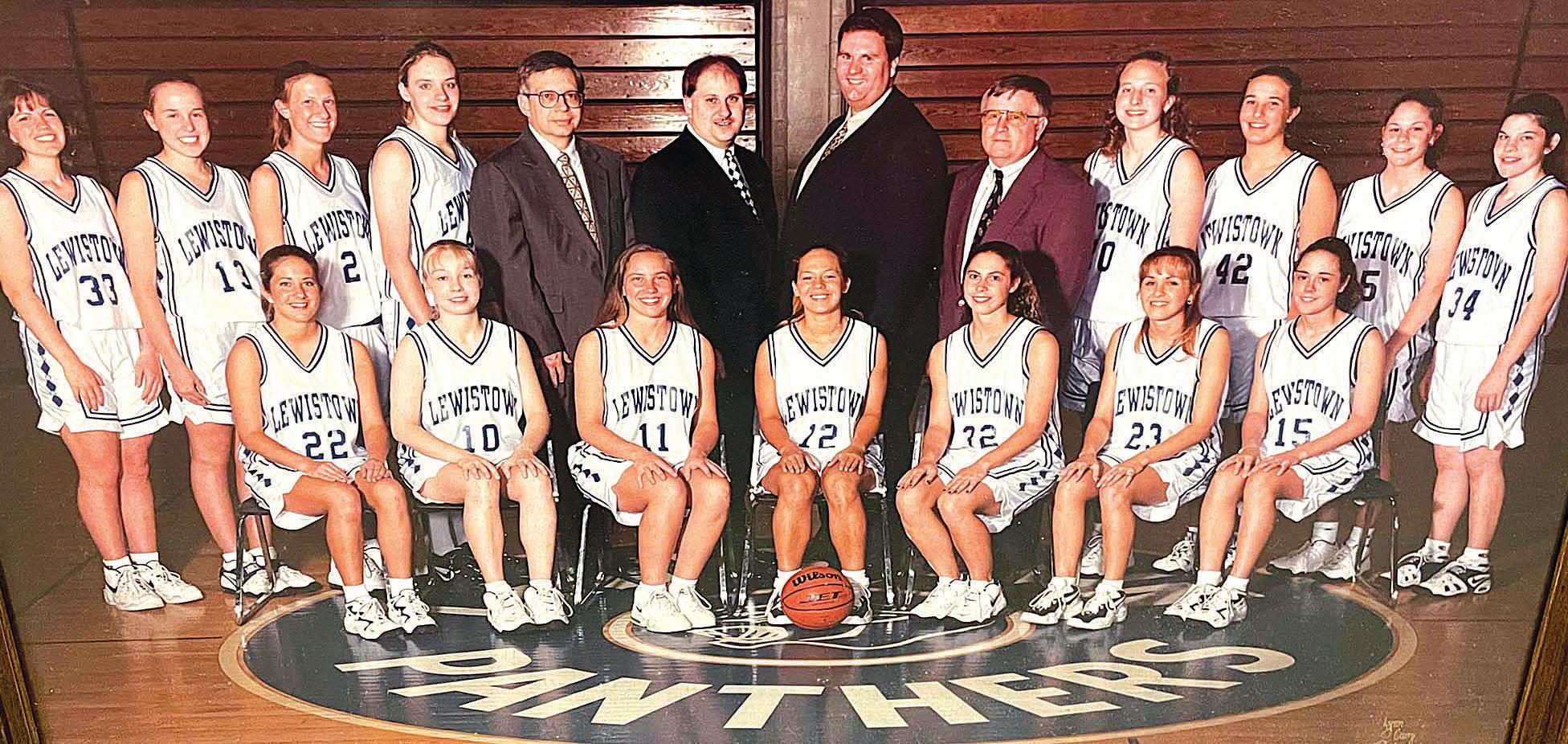








Continued from Page 3
state title teams for a few years as well, as Joanne passed the spatula to Joan Zampelli. The girls were certainly well taken care of in the food and nutrition department.
I will never forget the trI will never forget the tremendous support our teams received from the Mifflin County community. When we left town for a playoff game, there were always signs and balloons along the route out of the area.
When we left Lewistown for the state title games, people had bed sheets hanging from the second floors of their homes, saying things like, “Go Lady Panthers! Bring home the Gold!”
Simply put, the Lady Panther fans were second to none. No matter the location, our fans packed the gym and made our girls feel at home. The gyms literally vibrated when our team took the floor to the thunderous ovation provided by our hundreds of fans.
To reinforce an earlier point, what was especially nice about both of our playoff runs was that every player contributed in their own way. Everyone knew their role and pulled together for the good of the team.
The three guards, Gingrich, Johnston, and Jenna Feathers, paced us in scoring, and each of them took turns sparking us in
key scoring runs during games. Opponents couldn’t concentrate on stopping just one player.
These two teams featured defensive standouts like Sweeta Hutchinson and Heather McElwain, and tremendous rebounders like Enid Dunmire, Niki Snyder, Andi Zampelli, Hillary Worley and Melissa Merrill.
Other key supporting players helped the team reach its true potential. These players didn’t always get a lot of playing time in games but they always provided critical energy and competition each and every day in practice.
When thinking of those key supporting cast players, I remember players like Mackenzie Moser, Kim Maxwell, Jada Pursel, Gina Soccio, Ashley Miear, Katie and Jessy Wear, Heather Wheeler, Erin Searer, Haley Knable, Becca Getz and Kelli Altiery. Those players earned the respect of their teammates through the way they practiced and pushed the starters and key reserves.
I was very fortunate to have high quality, dedicated assistant coaches in both state title seasons. Charlie Funk and Ron Mills were super assistants, and Jim Fosselman supported us as scorer. Coach Funk also served as the junior high coach during the fall, so he coached the players at that point in time on their journey to the high school program.
It’s certainly import-

ant to note that in the seasons prior to the state championships, people like Dick and Aaron Gingrich, as well as Steve Feathers, provided great instruction and guidance to the girls. Dick started taking the girls to the Jewish Memorial Center in Altoona in 5th or 6th grade, and rivalries with schools like Central and Tyrone were born early. Aaron was a full-time volunteer assistant in the two years prior to the state titles before leaving to pursue his law degree.
Steve spent many a day and evening on the black top of the McVeytown playground helping players to hone their skills.
The media, especially our local radio stations and The Sentinel, were incredible in their coverage, and who could forget the great videos of the games created by the Zampelli Electronics and Nittany Media crews. People like Joe
Zampelli and Hank Hain made sure everyone had an opportunity to see the games on television. None of us will ever forget Roger Herto excitedly saying “She buried it” after a big three pointer or free throw in the big games.
Another memory that stands out to me was the willingness of WPSX-TV to help us out for the tele-
cast of the title games. The Harrisburg PBS affiliate produced the games, but we needed WPSX to step up and pick up the game feed so people in Lewistown could watch the games live. I believe it was a mutually beneficial relationship, however, as I remember Steve Jones being a WPSX studio host during the games encouraging peo-

ple to call in and pledge monetary support for public television. “Your support helps us bring great programming like this to you,” was a big tag line for the night. Needless to say, the WPSX phones were ringing all night long.
I also have to mention our athletic director ex-


Continued from Page 4
traordinaire, Tona Williams. I’ll never forget the night we won our first Western Final against Blackhawk. In the midst of the celebration, Tona mentioned we needed to do the state finals tickets for the parents of the players. I asked when, and she said, “Tonight!” Indeed, the turnaround
It is now 28 years since that first state championship, and it is amazing to reflect back on that time. In the first title season, we were so fortunate to have our Lewistown boys’ team playing in the state championship game as well.
Lewistown was called “Basketball Town USA” by a Harrisburg television station, and we were all so proud to represent Mifflin County in such a
for everything they did for me. My wife Shelly and daughters Katy and Brooke provided lots of love and support to me every step of the way. I could not have coached or accomplished anything without them.
My mother was the number one Lady Panther fan in my mind, and she probably set a state record for being the treasurer of a sports booster club for the longest length
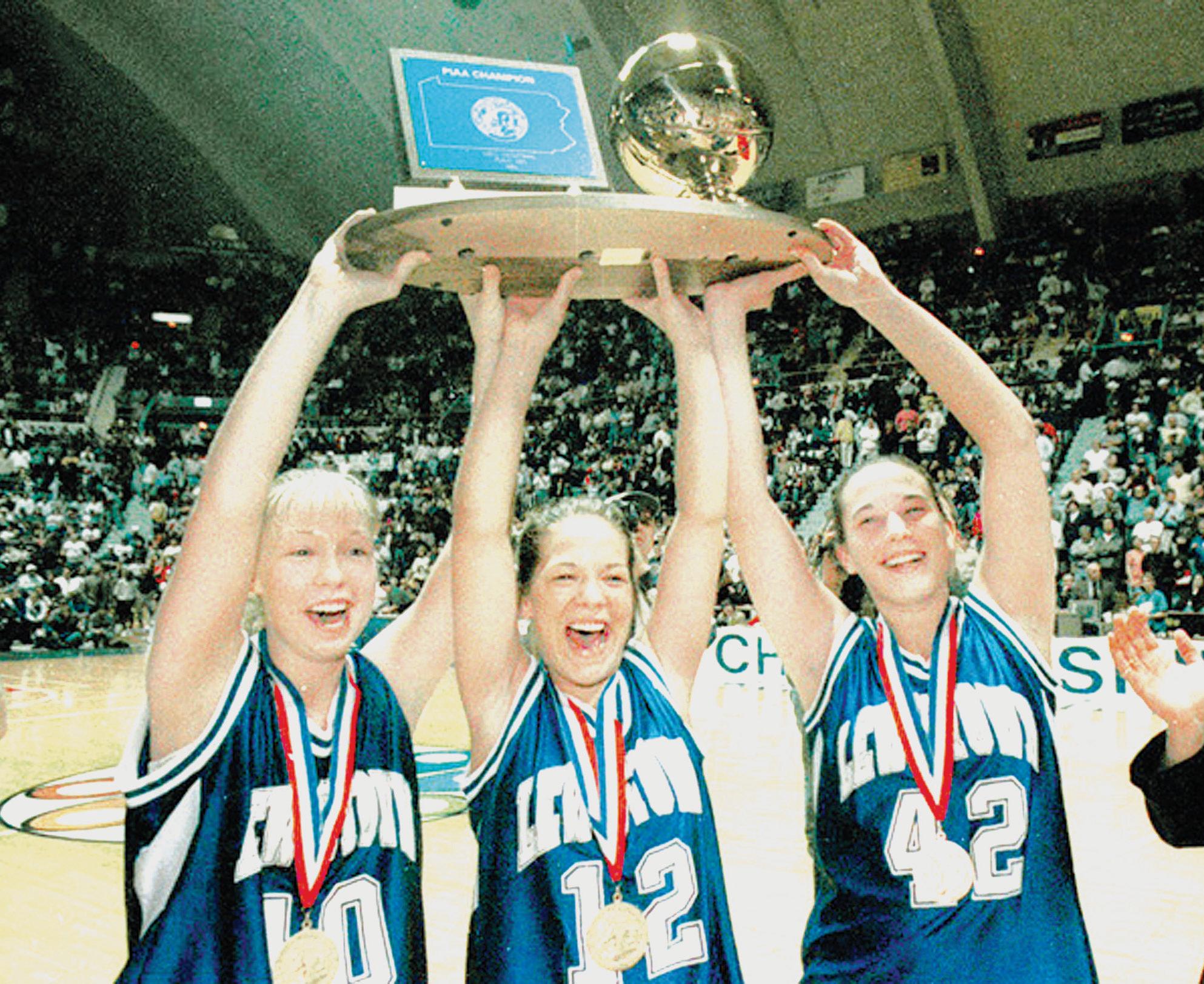


Bedroom Suites
Dining Rooms
Bunk Beds
Day Beds • Extension Tables
Hutches
Islands
Breakfast Bars
Sewing Cabinets
Office & Student Desks
TV Stands
Children Furniture & Toys • Much More! • New Upholstered Furniture (Made in the USA)
Lifetime Products & Poly Furniture • Great Selection of Jute Rugs, Bedding, Candles and more!
time between the games was short, and public sale of tickets had to be set up. Tona and her husband Chris came to my house that Wednesday night, and I think we were at it until about 3:30 a.m. figuring everything out.
positive way.
As the head coach of those teams, I am eternally grateful for all the players and families that contributed to our incredible run of success. Most of all, my family deserves my thanks and praise
of time. The Panther Club loved our teams, and our teams surely loved them back.
Taking all that into account, it really does take a little more to make a champion!
BY GREG WILLIAMS Sentinel reporter gwilliams@lewistownsentinel.com
MIFFLINTOWN –
Kurt Condo doesn’t need to ask Merriam-Webster Dictionary for the definition of a champion. Without a doubt, the Juniata High School football coach, his staff and players are champions. They have the trophy case to prove it.
The Indians won its fifth-consecutive District 6 football crown this past fall after beating Bellefonte 20-6 at Mansion Park in Altoona.
“I think a good definition of a champion is a resilient fighter,” Condo explained. “We’ve been fortunate to have a lot of student-athletes fit that description over the years.”
That’s right, a drive for five: Juniata topped


Bellefonte this year and advanced all the way to the PIAA Championship quarterfinals before losing to Southern Lehigh. The Indians finished 9-4 overall.
“We’ve had a core group of kids each year that have really bought into our program and philosophies,” Condo said. “They’ve learned to be competitive and have raised the bar of expectations with one another.”
In 2023, Juniata dominated Bellefonte 37-0 for the school’s fourth district title then advanced to the PIAA quarters where the Indians lost to Selinsgrove. Juniata went 8-6 and picked up three postseason wins, including the district final.
In 2022, the Indians were the only team in the district playoffs and
topped DuBois in a subregional to advance to states.
The second championship came in 2021 when Juniata routed Bellefonte 41-12 in the district final. The Indians won its state opener before losing to Meadville. That Juniata squad went 10-3 and also captured the MidPenn Liberty Conference crown.
The initial title in the run came in 2020, which might have been one of the toughest. The score was definitely the closest of the five as Juniata edged Bellefonte 24-21.
The Indians dropped their state opener to Oil City by a point to end the year at the pandemic-shortened season.
“Championships are hard to win because anyone that is competi-
tive has that goal to win a championship,” Condo said. “It often comes down to who has made more sacrifices and has wanted it more.”
This marked Juniata’s first district title since 1987.
The last two classes of senior football players graduated as four-time district champions, a feat that is difficult to accomplish.
“I think it’s very hard to repeat,” Condo said. “It puts a target on your back from your opponents. And the expectation of winning is there from those surrounding your program. You have to learn to not only outwork others but also outwork ourselves.”
“When I started out, I wasn’t that great,” recalled Peiper, who played linebacker and fullback this past season for the Indians. “As time went on, I caught my stride and never looked back.”
Peiper was fortunate enough to play for Juniata teams that returned a wealth of experience. He finished as the Indians’ second-leading rusher averaging 53.1 yards per game offensively and, on defense, sported a
See Indians/ Page 7
Like most players, Lane Peiper started playing football in the youth leagues. He was about age 9 or 10 when he suited up for the Juniata Little Indians in Pee Wees. Now 18, Peiper will graduate this spring from Juniata as a four-time champion. He credits his success to hard work and perseverance.
Continued from Page 6
team-best 9.3 tackles per game. He also ranked second with seven touchdowns scored.
“Coming in my first year, we had a lot of guys coming and the same with my second year,” Peiper said. “My junior year, we graduated a lot of guys.
“My senior year, there was no doubt we would be an amazing team,” Peiper added.
Still the games are won on the gridiron and not on paper. Peiper and Juniata had to earn every win with blood, sweat and tears.
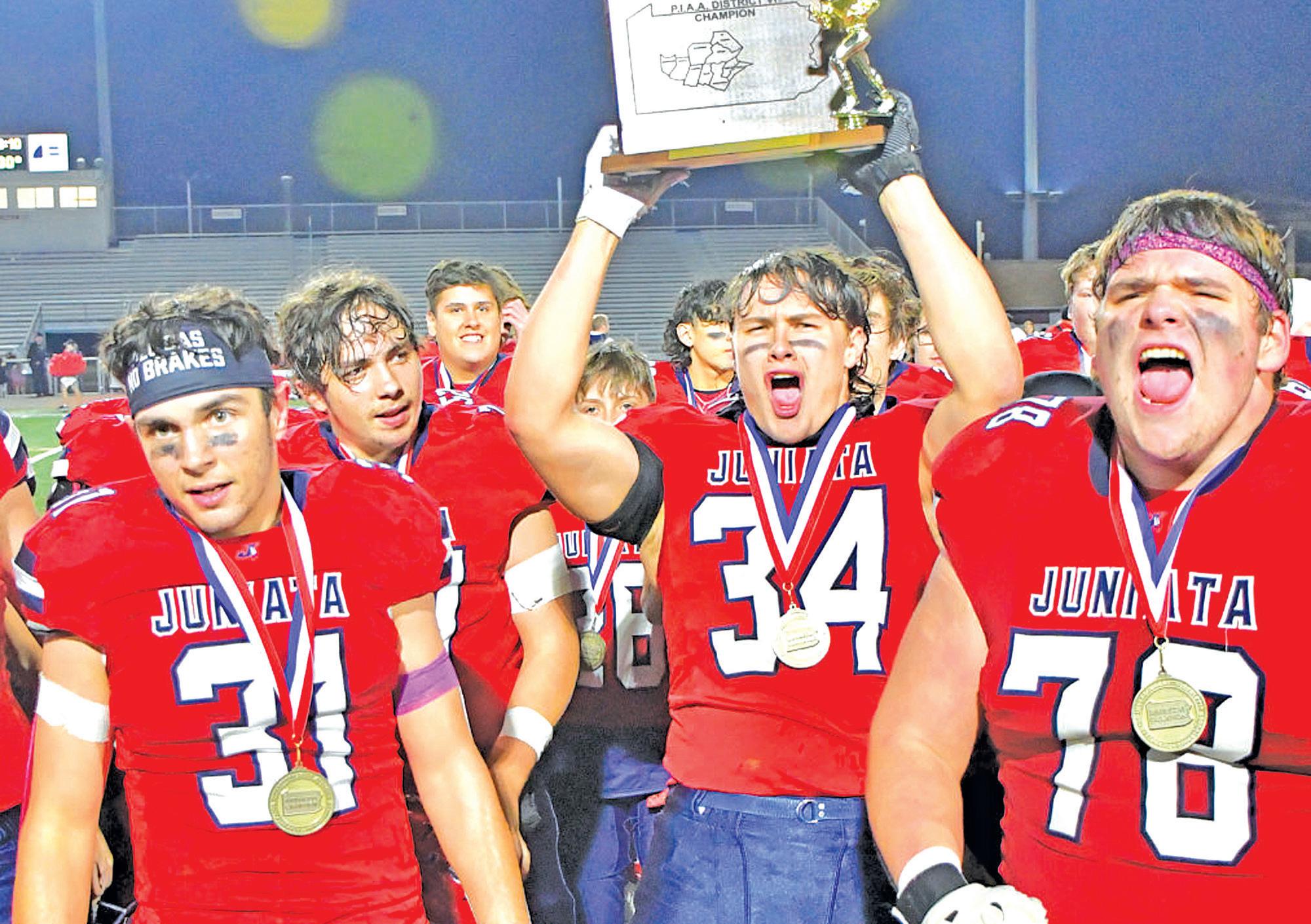
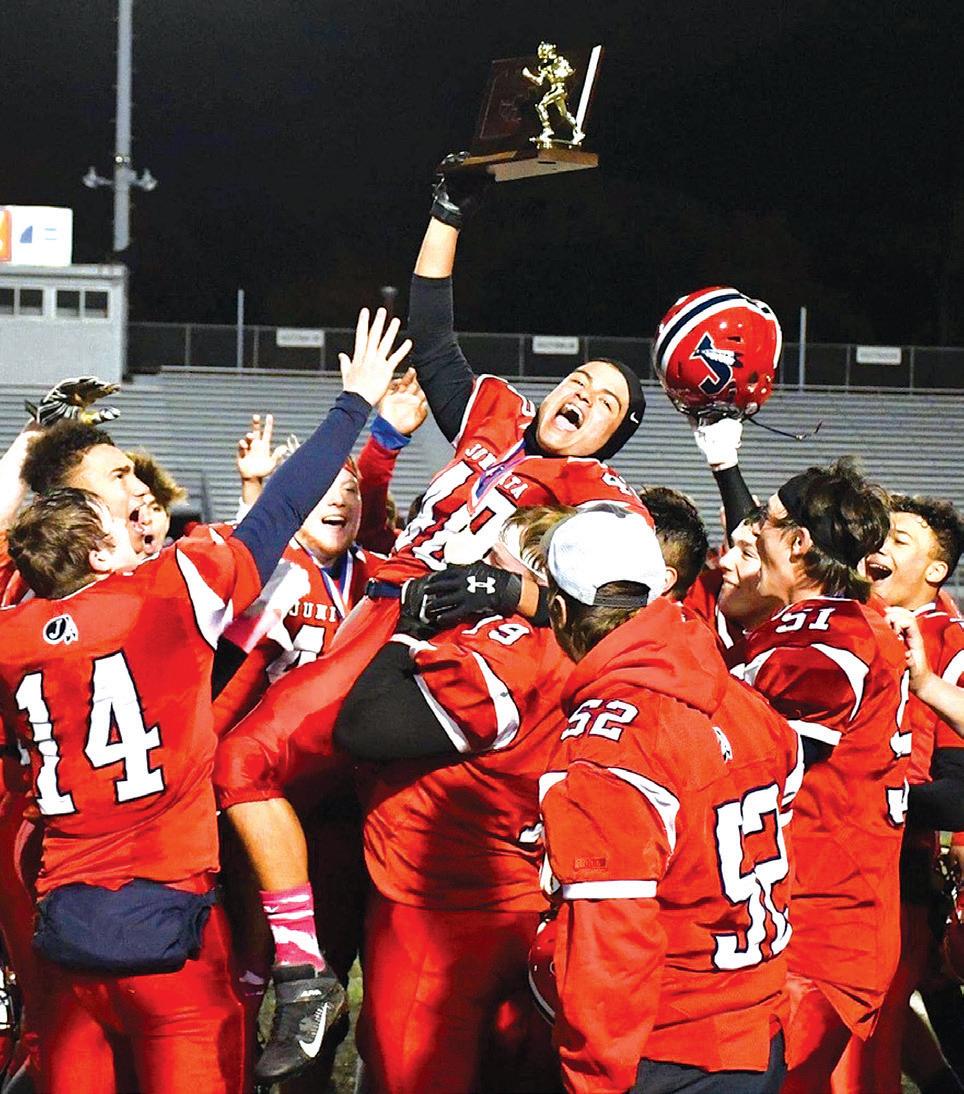
“I think pretty much any win gives you a good feeling,” he explained. He singled out the state playoff win over Shamokin this year and another over Meadville last year as special ones.
“Every single win is a good thing,” Peiper said.
His teammates agree with that sentiment.
Senior Connor Boreman said, “I would say for sure it’s a unique experience being one of the



tackles and turned in four interceptions.
The fact that Boreman contributed in so many ways has made the accomplishments even more special. “Yeah for sure, like coach had always told us as young freshmen and sophomores, ‘You get out of it what you put into it.’”
Junior Jasper Shepps hopes to add to the hardware haul next year, but the 6-1 speedster has caught the championship bug. He was also named to the all-state team each of the past two seasons, which along with the success on the field, has kept Juniata football in the spotlight.
Shepps led the Indians with 71.8 yards receiving per game as well as 16 total touchdowns and 14 receiving TDs. Defensively, he also intercepted a team-best eight passes.
“It feels good winning all those games,” Shepps said. “We know even if we are predicted to beat them (opponents) that we still have to go out and play our hardest game. I just love winning.”
The Juniata Indians are certainly champions of that.
few classes to do it. It’s definitely an honor and (feel) blessed with the opportunity to do so.”
Boreman also started in the Pee Wee ranks for the Little Indians. This year, he played wide receiver, cornerback and returned kicks.
As a senior, his average of 50.9 receiving yards was second as were his 11 total touchdowns scored. Defensively, Boreman averaged 6.7



BY RAY WILDE
Special to The Sentinel
LEWISTOWN - If someone moved to Mifflin County, they might be surprised to find out that the Mifflin County Babe Ruth League is one of the top leagues in Pennsylvania.
Most people from out of the area think that Mifflin County is located near a metropolitan area. In 2003, when the Mifflin County 14-yearolds were playing in the Mid-Atlantic Regionals in Latham, New York and doing well, one of the officials of the tournament asked me, “What big city is your team from?”
I told him that Mifflin County was in the middle of the state and we came from a very rural area. He replied, “Come on, tell me the truth.”
The next day he came to me and said,”I apologize, you’re right. I looked it up on Google last night and Mifflin County is in the middle of nowhere.”
Babe Ruth baseball is a national program. It was started in 1952 in Trenton, New Jersey. The national headquarters is also located in Trenton. From 1952 to 1968 there was only one World Series for players 13-15-years-old. Then in 1968, Babe Ruth put in a 13-year-old World Series. Thirty years later (1998), they added
another World Series, 14-year-olds. Then last year (2024), Babe Ruth allowed 16-year-olds to play. Most of the rule changes come from Trenton.
The Mifflin County league was founded in 1955. There were four teams: Belleville, McVeytown, Reedsville and Mifflintown. Since then, the league has expanded six times and has had as many as 10 teams. At present, there are nine teams in the league: Beaver Springs, Belleville, Belltown, Burnham, Lewistown, McVeytown, Milroy, Reedsville and Strodes Mills.
From 1955 through 1958 there were no records of the winning team. Belleville holds the record for the most league titles with 15 ½. Burnham is next with 13, while Lewistown has nine.
McVeytown has 7 1/2 and is followed by Reedsville and Yeagertwon with six; Belltown and Strodes Mills, three; Milroy two and Beaver Springs with one.
Mifflintown dropped out of the league in 1958. Milroy took the place of Mifflintown in 1958, while Burnham joined in 1960; Belltown came in 1962 and Strodes Mills followed in 1965. At one time, Burnham had two teams in the league in the 1960’s. Yeagertown fielded a team from 1971
to 2017. Lewistown had two teams (West and East) from 1999-2003. Beaver Springs joined the league in 2009 and fielded two teams in 2023, for just one year.
Belleville and McVeytown have fielded teams every year since 1955, 70 seasons.
There were no complete standings found from 1955-1966. Reedsville has played the most games in that span (19672024), 1,312. Reedsville did not field a team in 2020 and it also did not field a team in the early 1960’s.
Belleville has played in 1,306 games, while Belltown is close behind with 1,302. Belleville has the most wins with an 848458 (.649) record, while Reedsville is next with 837-475 (.638) mark.
Bunrham, which went to one team in 1970, has a record of 713-540 (.569).
Lewistown, which won six straight titles from 2008-2013, has a 408244 (.626) record, while Beaver Springs has a mark of 236-147 (.616).
Beaver Springs is from Snyder County and through the years Mifflin County has gotten players from Juniata, Huntington and Centre counties. The league draws players from Mifflin and Snyder counties. The boundaries go west to east from MIll Creek to Selinsgrove.
The league also gives out four regular season awards, which it has
done since 1970. Those awards are, Batting Title, Outstanding Pitcher, Most Valuable Player and the John Howe-Danon Beaston Sportsmanship.
There is also a prep league for 13-year-olds.
One thing that has separated the Mifflin County league from others in the state is that its managers have stayed in the program for a long time.
The top four managers in the league have won over 400 games between the regular season and All-Stars.
Belleville’s Bill Corbin has won the most games with a 776-448 record in 42 years (1983-2024). Next in line was Yeagertown’s Fred Zook, who had a 516-344 record in 30 years (1978-1987, 1998-2015) in the dugout.
The Reedsville team of father and son were third and fourth. Bob Reigle finished his career with a record of 504-243 and his son Scott had a 424257 mark. The elder Reigle coached for 30 years (1968-1997), while Scott
was a manager for 21 seasons (1998-2018).
Corbin holds the state record for most wins (776) and he also holds the record for most games coached and managed in 1,377, 46 years, 1979-2024. Second to Corbin was Scott Reigle in games coached or managed, 1,369 from 1972-2019, 48 years.
The top five All-Star managers all have over 75 wins. Corbin has a 123-55 record, while Zook had a 102-39 mark. Scott Reigle is third with an 85-30 mark. Fourth was Lewistown’s Bernie Howard with a 79-23 record. Fifth was Bob Reigle with a 77-37 mark.
All-Star Record
Over the past 70 seasons, Mifflin County has a 772-352 record in All-Star play. Here is a breakdown of each level of play.
District Seven, 30661 (.833); District Eight,10-10 (.500); Pennsylvania, 350-209 (.626); Mid-Atlantic Regional, 86-59 (.581); World Series, 20-13 (.606). Totals: 772-352 (.687).
State Champions
Mifflin County has won 25 state titles. The first one came in 1960, at the 14-15-year-old level. Mifflin County didn’t win another one for 13 years, 1973, 13-year-olds. Four more came in the 1980’s, 1981, 14-15-yearolds; 1983, 13-year-olds; 1987, 13 and 14-15-yearolds.
Then in the 1990’s, Mifflin County added three more, 1990, 13-year-olds; 1997, 14-15-year-olds and 1999, 15-year-olds.
The big decade was in 2000’s when Mifflin County won 10 state titles, 2002, 15-year-olds, 2003, 13, 14 and 15-year olds; 2004, 13-yearolds; 2005, 14-year-olds; 2007, 13 and 15-yearolds; 2008, 15-year-olds; 2009, 15-year-olds.
In the 2010’s, Mifflin County won five more, 2013, 14-yearolds; 2016, 13-year-olds; 2017, 15-year-olds; 2018, 15-year-olds and 2019, 13-year-olds.
The last state title came in 2021, 13-yearolds.
See Decades / Page 9

Continued from Page 8
Mifflin County holds state records in the following categories:
Most state championships, 25
Most state runners-up, 27
Most times in a state final, 52
Most state titles at 13-15-year-old level, 12
Most state titles at 13-year-old level, 10
Most times in Mid-Atlantic Regional, 35
Most state titles won on the road, 14
Most state titles won at home, 11
Most times in state’s final four, 87
Most state titles won in one decade, 10, 2000-09
Most state titles won in a row, five, 2002, 2003, 2004
Most times appearing in the World Series, 6 tied with Broomall-Newtown and West End of Williamsport.
Most times in the World Series national final, three times, tied with Levittown.
Most seasons in a row without a losing record, 55 (1968-2023).
Only league to sweep the state in all three age groups, 13, 14 and 15 (2003)
Mifflin County has had 19 teams finish in the final four of the Mid-Atlanitc Regionals. Six times, MIfflin County has won a regional championship
and gone to the Babe Ruth World Series.
The regional champs were 2002, 15-yearolds; 2004, 15-yearolds; 2016, 13-year-olds; 2018, 15-year-olds; 2021,15-year-olds and 2022, 14-year-olds.
The teams that just missed going to a World Series were 1960, 14-15-year-olds; 2003, 14-year-olds; 2004, 13-year-olds; 2009, 15-year-olds; 2017, 15-year-olds; 2021, 13-old-years and 2022, 15-year-olds.
In 1960, 14-15-yearolds were second to Huntington, West Virginia and that was the best finish for a Mifflin County team until 2002, 41 seasons.
Mifflin County has hosted the regionals six times, 2003, 2004, 2018, 2023, 2024 15-year-olds and 2022, 14-year-olds.
In 2016, Mifflin County won the national title for the 13-year-old age level. It also has produced two national runners-up, 2018 and 2021, both 15-yearolds.
Two teams were tied for fifth in the nation, 2002, 15-year-olds and the 2022, 14-year-olds. The 2004 15-year-olds were tied for seventh in the country.
Mifflin County defeated Pearl City, Hawaii for the national championship in 2016. Mifflin County is the only Pennsylvania team to beat a squad from Hawaii.








Continued from Page 9
Mifflin County has won 23 individual awards at the World Series.
Named to the tournament team in 2002 (15-year-olds), Nate Burkey; Chris Tressler (15-year-olds), 2004; Colby Bodtorf, Casey Conner, Brian Yetter (13-year-olds), 2016; Colby Bodtorf, Connor Cherry, Casey Conner, Bryce Dobson, Ethan Eichhorn, Brycen Hassngerr, Brian Yetter (15-year-olds), 2018; Tucker Gill, Ryan Kanagy, Trevor Sheaffer, Xavier Smith (15-yearolds), 2021; Reese Christine, Logan Ruth (14-year-olds), 2022.
Matt Wright won a Sportsmanship award (15-year-olds), 2002 and Casey Conner was named the Most Valuable Player (MVP) for the 2016 13-year-old World Series.
Winning batting titles were Casey Conner, 13-year-olds in 2016; Bryce Dobson, 15-year-
olds, 2018 and Reese Christine, 14-year-olds, 2022. Mifflin County is one of just two leagues in the country to win a batting title at three different age groups.
Mifflin County traveled to the following places for the World Series, Cinnersville,Indiana, 2002; Longview, Washington, 2004; Ottumwa, Iowa, 2016; Longview,Washington,2018; Eagle Pass, Texas, 2021 and Williston, North Dakota, 2022.
Pennsylvania
Babe Ruth Hall of Fame
Mifflin County has put 18 members into the Pennsylvania Babe Ruth Hall of Fame. It has the most members of any league in Pennsylvania.
Butch Bender, coach, manager, Belltown, Burnham, Class of 2009; Bruce Brumbaugh, coach, manager, McVeytown, 2003; Bill Corbin, Belleville, coach, manager, league officer, 2009; Chuck Curry, Lewistown, coach, league officer, 2009; Gary Fultz,














A sign at Armagh Field in Milroy honors Mifflin County’s 2016 13-year-old Babe Ruth Baseball national championship team. The sign was placed at the field in 2018.
Milroy, coach, manager, 2001; Bernie Howard, Lewistown, coach, manager, league official, 2008; Mike Milliken, Yeagertown,coach, 2011; Lloyd ‘Sach’ Mowery, Belleville, McVeytown, coach, league official, 2023.
Bob Reigle, Reedsville, coach, manager, league








Dave Woilfkill, Burnham, coach, manager, 2001; Bob ’Woody’ Woodward, Reedsville, coach, 2002; Justin Yoder, McVeytown, coach, manager, 2020; Fred Zook, Yeagertown, coach, manager, 2002.
Gary Stimely of McVeytown held the post of president of the league for 38 years, 1985-2019. No other man has served as long as he has at that position.
league has all of its regular season and All-Star games covered by the Sentinel. It is one of the few leagues in Pennsylvania that still has their games published in a local paper.
The league also has regular season and AllStar games on a radio station.
official. 2000; Scott Reigle, Reedsville, coach, manager, league official, 2000; Gary Stimely, McVeytown, coach, manager, league official, 2002; Dave Stuck, Belleville, coach, 2009; Tom Terry, Burnham, coach, manager, 2003; Ray Wilde, Belleville, public relations, 2000;
Scott Reigle was the league treasurer for 27 years before he gave that up to serve as the Pennsylvania Babe Ruth state treasurer. Reigle was the state treasurer from 1998-2018. Bill Corbin has been the league’s treasurer since 1998.
The league has retired five numbers Bob Reigle, 38; Scott Reigle, 45; Gary Stimely, 41; Gary Fultz, 3 and Fred Zook, 99. The Mifflin County league was the first one in Pennsylvania to retire numbers.
The Mifflin County
The Mifflin County is the only league in Pennsylvania and possibly the only one in the country to publish media guides, which it has done seven times, 1978, 1989, 1992, 2004, 2005, 2017 and 2024.
Summary
In summary, the Mifflin County Babe Ruth League,is the most complete league in Pennsylvania and one of the most complete leagues in the MId-Atlantic Region and the nation. That includes, the regular season, All-Stars, Pennsylvania state records, the Pennsylvania Babe Ruth Hall of Fame and the media.







Doug Pierce has enjoyed participating in a variety of sports all his life and has experienced the ups and downs of athletic competition. But he has accomplished the ultimate goal in three sports: a no-hitter in Little League Baseball on May 7, 1968, in which he struck out 16 and walked
one in a game between Fairview and Pleasant Acres; a 300-game in bowling at Juniata Lanes in Mifflintown during the Thursday Night Men’s League on Feb. 28, 1985; and a hole-in-one on the 6th hole of Indian Run Golf Course on Sept. 19, 1981, while golfing with friends. He has also experienced ups and downs throughout his life (just like with sports) but works to accomplish his ultimate goal of serving Christ as a pastor and as the chaplain for the Belleville Fire Company. He continues to champion others and frequently uses sports analogies in his sermons.
Submitted by Marlene Pierce, Belleville

Leevi Christopher Fultz has battled through and beaten a very rare form of brain cancer twice in his nine years. Leevi was first diagnosed one week after his second birthday and again when he was six-yearsold. Through all the adversity, Leevi has remained a sweet, loving little boy who lives with this every day. Leevi is not only my grandson, he is my hero.
Submitted by James Yeater, Lewistown



BY TOM LAUB Lifestyles editor tlaub@lewistownsentinel.com
CASA GRANDE, Ariz. — The destination was planned many years ago. The route traveled was slightly less clear. When Mark McCrory decided on a career in law enforcement, the stage was set for years of achievement and success. It was a stage that was constantly moving forward.
A Lewistown native, McCrory graduated from Lewistown Area High School in 1977 before heading to college to study accounting.
“I started college as an accounting major,” McCrory said. “This was recommended to me by both my father and Mr. Barger, who taught accounting in high school. I had always enjoyed it as a high school class and thought it would be something I would enjoy as a career. It did not take me long to realize that was not something I wanted to do the rest of my life. I started looking for a career field that would allow me to be more active and possibly have a certain level of excitement to go along with it. Administration of justice seemed to meet all those expectations and I switched majors.”
Even before his revelation in college, there was a police influence in McCrory’s life.

cess was very competitive and the higher you went the fewer positions were available,” he said. “I am very proud that Derek attended every promotion from his birth in 1991 until my last one in 2005. To me it was a great personal highlight that he wanted to share those moments with me.”
guez (34) (McCrory took him in at age 17 and he is considered a son), and McCrory’s mother, Dolores.
McCrory also enjoyed watching many of his colleagues achieve success.
“Growing up, I played for the Police Pals in Little League and we were coached by Jay Laub, and my neighbor was Aurie Snook, both Lewistown Borough Police sergeants who seemed to really enjoy their jobs,” he said.
“My initial plan was to go into the military after college and I joined ROTC,” McCrory continued. “After my sophomore year I went to take the physical to sign on and flunked my hearing test. That fall, the instructors came to me and told me they would show me how to pass it but by then I had decided my career path would be municipal law enforcement. I have never regretted that decision, even for one day.”
He graduated from Shippensburg University in 1981 with a degree in administration of justice. It was just the beginning.
He moved to Tulsa, Oklahoma with his girlfriend, Beth, in the spring
of 1982. The move was sight unseen, with no job waiting. Mark and Beth were soon married and he applied for openings in the Tulsa Police Department. He started at the Tulsa Police Academy on July 15, 1982.
For the next 33 years, McCrory was one of Tulsa’s finest. There were many personal highlights, including several promotions, being selected for and serving on the Tulsa Police Department SWAT team for just under 10 years, working undercover narcotic assignments as an officer and eventually serving as a sergeant in the major narcotics unit until being promoted to lieutenant, being selected as supervisor of the year and state narcotics officer of the year,
The accomplishments speak for themselves, but McCrory’s biggest reward is sharing the milestones with family.
“The promotional pro-
Family is important and father and son are very close. McCrory’s immediate family includes wife Shelly, son Derek (33), daughter-inlaw Diana (31), step-son Caden (32), Emilio Rodri-
“After making sergeant, watching people who worked for you and with you getting promoted to leadership positions and assisting them along the way was a big career highlight,” he said. “Something that is often overlooked is getting to work closely with so many great officers
and experiencing a vast amount of different situations with them. These would go from mundane to actually terrifying but they all are fondly remembered and discussed with those you experienced them with.”
The life of a police officer is a mix of situations and experiences, ranging from mundane to heart-pumping. McCrory has witnessed the full spectrum from one extreme to the other.
“All officers remem-
See Success / Page 13

Continued from Page 12
ber their firsts,” McCrory said. “First time having a gun pulled on you, first arrest, first pursuit, first time you perhaps witnessed death or tragedy, first time getting shot at or the first time you had to go do a death notification.”
“However, one event still stands out to me and thankfully I have not had to experience it often. My first police funeral for one of our officers who was killed in the line of duty. K9 officer Dick Hobson and his backer, a friend of mine Steve Downie, were both shot searching an alley for an armed robbery suspect. The suspect opened fire on them with a shotgun. Severely wounding Downie and killing Dick. Attending his funeral is something I will never forget. The crowds of officers and citizens, watching his family arrive at the church, his K9 entering the church and immediately going to sit beside the coffin and how the K9 whimpered. Seeing some of the toughest and bravest people I have ever met crying brought me to tears. It had a very emotional impact on me and everyone at the service.”
The harsh reality of police work is the risk officers take every minute of their shift and beyond. The relative calm of a ho-hum day can be shattered in a second when a situation arises. McCro-
ry has seen his share.
“Arguably one of the most dangerous situations involved a 27 hour standoff, when I was a member of the SWAT team,” he said. “We were attempting to arrest a well-armed 28-year-old double-murder suspect, who was barricaded inside his apartment and holding his 80-year-old grandmother as a hostage. He fired in excess of 70 shots from various weapons, including an AK47, at various times over the 27 hours. He ended up shooting up my patrol unit but I was out of it at the time. We attempted what is called a “break and rake” on his front windows to allow our snipers to have a better view of the inside of the apartment. This consists of moving three officers to the front. The first officer carries a ballistic shield to provide some cover for the other two. The second officer’s job is to break the window and use a tool
to pull down all the curtains. The third officer is the cover officer and he is looking over the other two to provide cover fire if needed. I was the second officer and once I broke the window the suspect fired at us with his AK. One round went through the shield but missed both the shield officer and me. We pulled back behind the first cover we had and the suspect fired approximately 15 additional rounds at the cinder block wall we were behind. He fired at one of our snipers, striking some aerosol cans and igniting a fire that quickly spread. The fire department would not enter the area so myself and other officers had to man the fire hoses to get the fire under control. The suspect ended up committing suicide.”
The toughest situations for McCrory were ones involving the death of a child or the notification of death to a relative. On one Christmas

Submitted photos
Eve, a Tulsa Med-X was robbed and the suspect shot and killed the clerk. McCrory, the responding patrol officer, had to inform the clerk’s husband his wife had been killed in the robbery. The husband told him his wife was quitting Med-X. The Christmas Eve shift was to be the woman’s last.
“Not a great Christmas Eve,” McCrory said.
He retired from the Tulsa Police Force with the rank of Deputy Chief of Police on Dec. 31, 2015. At the time, he oversaw the Operations Bureau that consisted of three patrol divisions and the support division. The support division included all the motorcycles, K9s, SWAT, dive team, helicopters and special events.
In February 2016, McCrory and Shelly moved to Arizona after he accepted the job of Chief of Police with the Casa Grande Police Department. He went from a department of 850 to one of 90.
“We agreed to move here for five years and then move back to Tulsa,” McCrory said. “We were here for four years and knew we were never leaving, even after I retire.”
It has been a storied career so far with many changes in police work. Technology, greater transparency, data usage, drones, training, forensic science and emergency preparedness are just some of the improvements in law en-

We have so many great friends here and we don’t want to leave.”
As for his decision many years ago to enter law enforcement?
forcement McCrory has seen over the past few decades.
The negatives, according to McCrory, are social media and the spread of inaccurate information, the dwindling number of qualified individuals who want to enter law enforcement, better-armed criminals, the spike in violent juvenile crime and the erosion of public trust over the years due to incidents taking place across the country.
The decline in an officer’s mental health and wellbeing and the increase in police unions and their influence in resistance to reforms or changes also impact law enforcement.
“Some unions make it nearly impossible to get rid of a ‘bad apple’ that may be in a department,” McCrory said.
As for retirement, McCrory has not set a timetable.
“My career plans are to keep working until it stops being fun,” he said. “I still really enjoy working alongside individuals that range from 21-60 years old. Shelly and I have plans to stay in Casa Grande forever.
“I have no regrets in choosing to become a police officer,” he said. “It is something I enjoy more than I can put into words. This career has exceeded all of my expectations and provided me with so many good and thankfully less bad memories. It certainly has not always been an easy job but it has always been a satisfying one. I actually think I was able to make a difference in the community I lived in whether it be Tulsa or Casa Grande. It is not for everyone and I honestly am glad that the three boys elected to go into banking, finance and energy fields rather than policing. When I talk with new officers about the fun side of the job, I remind them if you go to a party with lawyers, accountants, finance officers etc., no one asks them to talk about their day. However, they all want to hear about yours. Looking back on any career, and even one ongoing, a sense of satisfaction signifies a correct choice.
“I honestly would not change a single thing about my career decisions,” McCrory said. “I loved being a police officer in Tulsa and I love being an officer in Casa Grande.”
The right decision and the right career, and the right man for the job.
BY LIV SUYDAM Sentinel reporter osuydam@lewistownsentinel.com
AIR FORCE ACADEMY, Colo. — Throughout the world, people are succeeding and accomplishing lifelong dreams, becoming champions of their lives.
Cory French, a 2023 graduate of Mifflin County High School, is a prime example of a champion in life.
French dedicated countless hours, hard work, and patience into applying to the United States Air Force Academy and, in the end, his efforts paid off and he was accepted into the prestigious military academy.
Currently, French attends the academy, located in Colorado, as a sophomore majoring in biochemistry with intentions to enter the medical field after graduation.
“The Academy chal-
lenges people in nearly every way, but results in making you a better person.,” shared French.
“The opportunity to attend allows me to best serve the nation, and develop professionally and personally.”
French decided his junior year of high school that he was interested in pursuing the Air Force Academy as his post secondary education, however, this is no easy feat.
“The process involves rigorous interviews, a lengthy written application, and tough physical fitness tests,” explained French. “The entire application package is sent to a committee that determines your overall application and decides on your acceptance.”
Outside of the application, students need to receive a nomination. This nomination can be from a congress member, the vice president, senator, or U.S. representative.
Darell Campbell was like a father to us. That’s why we called the softball team “Dad’s Boys.”
We were all firemen at the City Hook and Ladder Fire Co., in Lewistown. Darell was a fire truck driver.
We were all like brothers and still are today. We hung together. We did good deeds for peo-
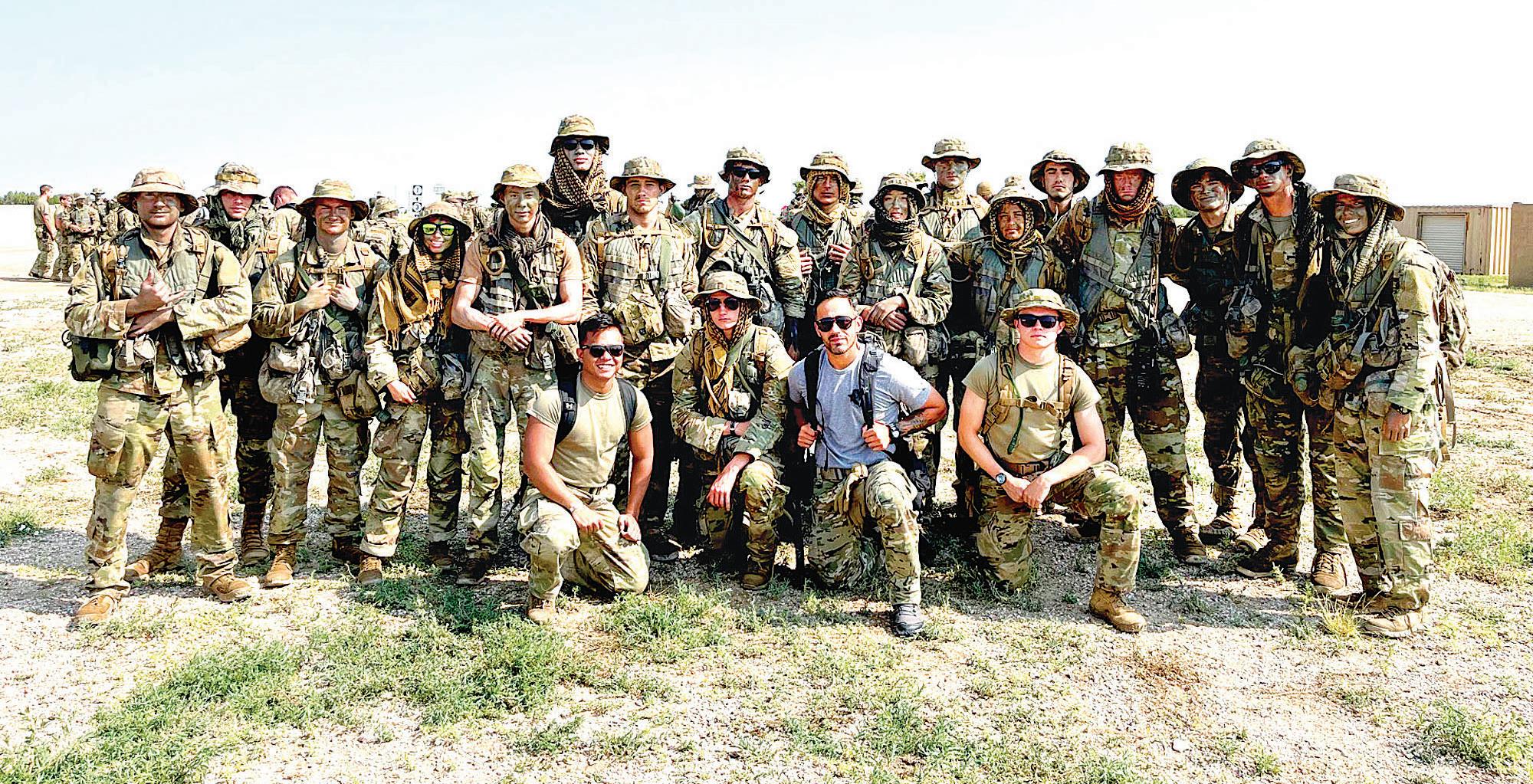
French (standing,
The United States Air Force Academy has a 14% acceptance rate, and the process of applying is intense.
According to Mifflin County High School guidance counselor Stephanie Gilbert, the application process for the academy begins junior year. That is when the application materials will be prepared and a student can start physical-
Felmlee and Jeff Pursel.
ple in Lewistown.
We played softball together as members of Dad’s Boys. Once a year, we played a 24-hour softball game to benefit the March of Dimes. We played non-stop for 24 hours against several teams.
Darell was a bartender at the City and our softball coach along with Jim
Darell kept us in line no matter where we were. I think it’s safe to say that if it was not for Darell, some of us might have ended up in jail.
Darell passed away just before Christmas 2024 while away on vacation. He will be sadly missed. Thanks, Dad. We all owe you, all your boys.
Submitted by Steve Rush
ly preparing. However, preparation truly begins in 9th grade.
“I think students forget that the military academies are very competitive,” shared Gilbert. “The academy looks for students who are challenging themselves in honors and AP courses. They want to see a high level of math and sciences.”
French said he stud-
Submitted photo
ied hard for his classes, did his best in sports and tried his best to be a positive influence and uplift others.
“As a sophomore at the Academy, my life is balanced between mandatory athletics, military training and academic classes,” French said. This time at the Air Force Academy will prepare French for the life of an officer as upon gradu-
ation he will officially be a United States Air Force officer, with plenty of opportunity for graduate school, travel and unique jobs.
“My brother, A.J. French, has had the greatest influence on my accomplishments.,” French explained. “His admirable work ethic and willingness to serve others greatly inspired me.”
French also expressed a special thanks to his high school teachers and coaches who supported him as well as his parents who have been a constant source of support with meaningful advice and encouragement.
“The goal of Academy students is to serve others and benefit our country and community,” explained French. “I hope to serve America well and to become the best possible version of myself while doing so.”

— Rudy Tomjanovich




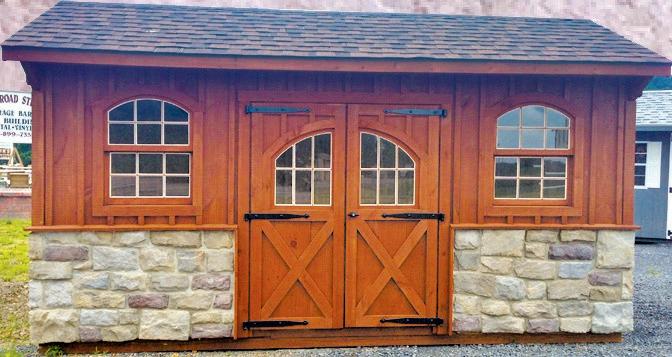










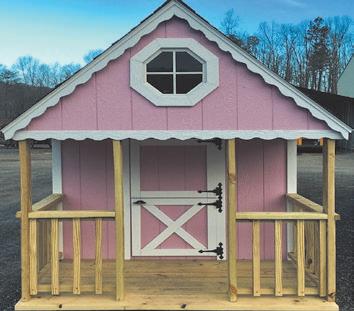
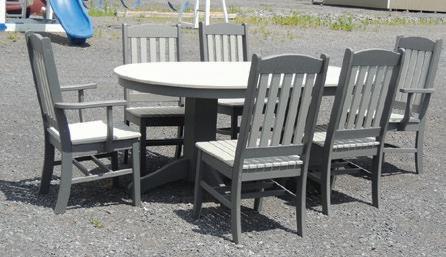




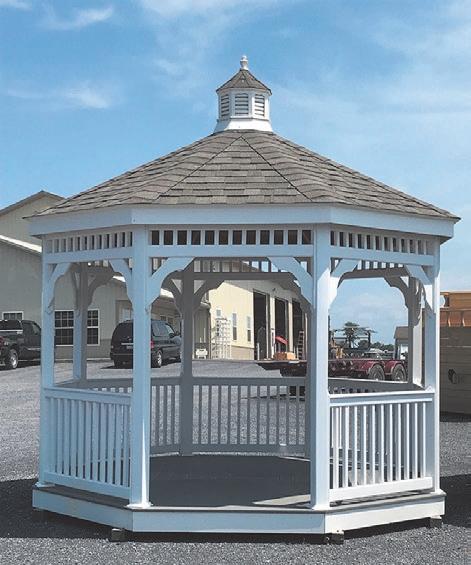
BY BRIAN CARSON Sentinel reporter bcarson@lewistownsentinel.com
LEWISTOWN – Kenny Varner never planned to become a Special Olympics coach. In 1999, he went to cover a track meet where his sister coached. The experience changed his life’s trajectory.
“I got to see a little bit of what it was like,” Varner recalls of that first encounter. When he learned the basketball program needed a new coach after the previous one retired, he stepped in.
Twenty-five years later, Varner continues coaching special needs individuals. He leads the Central Keystone football team (formerly Burnham Bulldogs) into its 19th season. He works at United Cerebral Palsy (UCP), marking his 22nd year helping clients with special needs.
The transformation extends beyond sports. Varner witnessed societal attitudes shift from the 1970s and 80s when his aunt and cousin with special needs faced public ridicule and discrimination.
“They were treated like animals,” Varner says of those earlier decades. “No one was afraid to publicly make fun of them because of their looks.”
Today’s landscape differs markedly. Varner observes more integration in schools, where students with and without special needs interact regularly. The change reflects broader acceptance and understanding.
“Now we’re getting to an age where even younger kids realize these kids are fun to be around,” Varner says. “There’s not much difference between them.”
His coaching philosophy centers on ability, not disability. The results speak through success stories like TJ Stroud, one of Varner’s first Bulldog players. Stroud, an Eagle Scout with high-functioning autism, progressed from never playing football to scoring a touchdown for his high school team before heading to college.
Another player recently made his high school football team. “He was welcomed with open arms,” Varner says. “People loved him, and now he’s on his way to college.”
At UCP, Varner applies coaching strategies to help clients gain independence and confidence. One client transformed from extremely shy to outgoing over seven years.
“He’s more outgoing now than I am,” Varner says. “He picks on people and jokes with them. He’s not afraid to say ‘hi’ to people.”
“Ninety-percent of these special needs individuals are the most pleasant people to be around. Life has thrown them curveballs, but they’re standing in the face of conflict and enjoying their lives. They have such positive attitudes.”
— Kenny Varner
The work requires patience, understanding, and respect. Varner emphasizes treating individuals with special needs as equals. “They don’t want to be catered to or spoiled,” he explains. “They want to be treated like you and me. If you do that, you’ll get their respect.”
His approach focuses on direct, clear communication without condescension. “The worst thing you can do is talk down to them,” Varner says. “It’s about how you approach it. If you approach with caring and explain things, they respect that.”
The rewards flow both ways. While Varner guides athletes and clients toward new achievements, their resilience and optimism impact him profoundly.
“Ninety-percent of these special needs in-
be 30, 35, 40 years if I can,” he says. “I think I get more out of it than the kids do. In a world of such negativity, you can go to a place and coach these kids who show nothing but love and positivity.”
The Special Olympics motto - “Let me win, but if I cannot win, let me be brave in the attempt” - echoes through Varner’s work. His athletes demonstrate bravery daily, pushing past limitations others impose on them.
dividuals are the most pleasant people to be around,” he says. “Life has thrown them curveballs, but they’re standing in the face of conflict and enjoying their lives. They have such positive attitudes.”
The relationships extend beyond seasons and schedules. Players become family. Even after games end, they seek Varner’s counsel on personal matters. “When they start telling me about their personal lives, wanting help or someone to talk to, I feel like we’ve done something as an organization,” he says.
His commitment shows no signs of slowing. While approaching his 20th-anniversary coaching, Varner hopes to continue “till I can’t physically do it anymore.”
“I’d like to go may-
His legacy lives through changed perspectives and lives touched over 25 years. The shy athlete who discovers confidence. The player who makes his high school team. The client who learns to navigate the world independently.
Through coaching, mentoring, and steadfast dedication, Varner exemplifies the championship spirit - not through trophies or medals but through empowering others to reach heights they never imagined possible.
For those considering involvement with Special Olympics or special needs programs, Varner offers encouragement: “If anyone has a chance to coach a Special Olympics team or get to know some of these kids, take time out and do it. It’s worth the time and effort.”

During the time that my brother, Carl “Buddy” Kodish, was in rehab for his right knee replacement, we had a song list that we played for inspiration and encouragement. “We Are the Champions” by Queen was at the top of the list. The lyrics ring true for Buddy’s life, not just the time spent recovering from his surgery. He has fought through adversity for all of his life.
Buddy was born with intellectual disabilities at a time when the edu-
cational system did not have a place for him. No local school could meet his needs. Our parents were forced to make a decision that was heartbreaking and at the age of 10, he was sent to the Allentown State Children’s Hospital where he remained until he was 16-years-old. While he was in the institution, we were only able to visit him once a month. He came home for Christmas and one week in the summer. Buddy endured his time in Allentown

and then entered into a special Adolescent Unit at Harrisburg State Hospital. The goal was for

him to learn enough skills to attend/work at a newly conceived sheltered workshop, Skills of Cen-
tral Pennsylvania. Being the champion that he is, Buddy was able to come home to live and had a 49-year career at Skills.
Buddy had another hurdle to overcome when our mother became unable to care for him at home. We found a group home for him in the McVeytown area and he transitioned there with no problem. He likes to recall how he came out to wave goodbye to me and mom with a smile on his face. It made our mother happy to see him so at ease in his new home as an independent man.
life-to make you smile. He is always eager to please and looks for ways to make you happy. After his first week in the group home, some of the family met at a local restaurant to see him and hear from him about his new home. His niece, Brooke, asked him for some advice about life. Here is his response: “Behave. Live a good life. Have fun. Be happy.”
Buddy is a champion in my book. And I know that he will keep on fighting till the end.
Buddy has one goal in



Submitted by Margaret Kodish Zook, Reedsville



BY ANTHONY FIUZA Sentinel sports editor afiuza@lewistownsentinel.com
HUNTINGDON — Juniata College accomplished the ultimate goal of winning its third consecutive national title in women’s volleyball during the 2024 season.
Juniata finished the year undefeated at 35-0. The Lady Eagles didn’t lose a set in 29 of their matches.
Eagles head coach Heather Pavlik noted that her program left big marks at the Division III level.
“This program has been at the top of Division III for four decades but this is probably the most dominant the program has ever been. Three in a row is special in Division III overall as only a couple of other programs have accomplished this feat. Our back-to-back undefeated seasons are the first in Division III history,” Pavlik said.
Most of the season was smooth sailing for the Eagles, but in the NCAA Championship and semifinals, there were certainly some rough tides.
In the national final, Wisconsin-Whitewater rallied from a 2-0 deficit to tie the Eagles. Juniata would take the last set. In the national semis, Juniata came back from a 2-0 hole to tie Hope before eventually winning the

match, 3-2.
“This team (Juniata) is a group of fighters and there is no way that they wanted many of their careers to end that way. They had that mentality both of the nights where we went five games to win. Yes, it is a little sweeter when you really have to battle in order to win,” Pavlik explained.
Juniata senior Lily Podolan, who recorded 11 kills against Hope and 14 against Whitewater, said her teammates wanted to play their game no matter the outcome.
“The emotions were intense. Especially us seniors, we knew it could be our last game together ever. After the first two
sets that Hope won, we came together and talked about going out there and giving it our all for every point so we would be proud of how we ended. No matter what the score is, we stay aggressive and play together. Every point I celebrated because every point mattered. Honestly, we were stressed when we were down. But you can’t let fear and stress stop you from playing exactly how you would play any other time, so we told each other to stay aggressive at all times,” Podolan said.
“Both games we knew that we were capable of winning, so we were motivated to prove it to ourselves. It was exciting the
whole way through, even when we were down, because it pushed us to work harder.
It was not how I expected either of those matches to go, but that made our win that much more special. To know
we were faced with adversity and pushed and came out on top makes me so proud of my team.”
What is it like winning a third national title?
“I still don’t have the words to explain what each of my three national
titles have meant. It feels surreal. It is an absolutely incredible feeling when all of your dedication and hard work has paid off. I have never been prouder of my team and what we
See Eagles/ Page 19



Continued from Page 18
have accomplished. We soak each moment in. We celebrate with each other and family. This one is different, since it is my last time playing collegiate volleyball,” Podolan explained.
“There were many tears at the end of the game and later that evening because of our win, our last time playing together, and our love for each other. The other championships were celebrated, and then we
strived to do it again. This one, I can finally step back and look at my career and every single accomplishment my team has and be filled with pride. I can’t think of any moments throughout my career that do not make a national championship worth it. I would do it all again a million times if I could.”
There were several big-time performers for the Eagles during their title season. Olivia Foley (graduate) had 1,125 assists and Mackenzie Coley (senior) recorded 354 kills. Kiona Sky Rousset-Hernandez (graduate)
posted 491 digs. Podolan had 250 kills during the season.
Podolan added that her teammates help her become a better athlete. Their effort on and off the court play a crucial role.
“My teammates are my biggest inspiration. They pushed me to be better by working hard themselves. When I see my teammates continuing to give 100% of their effort on the court or in the weight room, it motivates me to do the same. We all have the same goal we want to reach, so we support each other and constantly set the

standard of what this program should look like,” Podolan said.
“All of my teammates are not just great volleyball players, but genuine friends. When you have a bond off of the court, you trust your teammates that much more and understand the kind of player they are. My teammates got to know me and learned how to support and motivate me, therefore pushing me to be better everyday.”
During tougher matches Pavlik helps her team by staying the course and not riding with the highs and lows.
“Coach Pavlik helps our team through tough matches and sets by staying calm and reminding us of what we are capable of. Never once has she yelled at the players on the court or gotten frustrated at us having a tough set. These things are bound to happen in volleyball, and teams need encouragement to get through them. She would always call us together and help us understand that half the battle is mental,” Podolan highlighted.
“We knew we had the talent, but she would provide opportunities to

take a breath, focus in, and simply enjoy every moment we were playing volleyball. If individual directions were needed, she talked to that player one-on-one and would always end it with a “you got it” or “go kill it.” I knew that if we gave 100% of our effort in those matches, then Coach Pavlik would always be proud of us.”
The Eagles can celebrate for a whole offseason as they sit atop the women’s volleyball landscape as national champions. Whatever next season brings, Juniata will definitely be ready.






BY GREG WILLIAMS Sentinel reporter gwilliams@lewistownsentinel.com
BELLEVILLE – Pushing pencils or crunching numbers isn’t exactly Jeff Kanagy’s typical day at the office.
The Belleville native doesn’t mind it now and then, but he would much prefer driving a jet boat down the Juniata River or another waterway at speeds of up to 50 miles per hour.
Of course, it would be in one of his own company’s River Raptor Jet Boats.
In June 2014, Kanagy, who now lives in Reedsville, and partner Rob Plank, of Mattawana, founded Raptor Design and Engineering LLC, which manufactures the River Raptor jet boats.
“It’s the classic story of concluding you can build a better mousetrap,” explained Kanagy, who along with Plank is an avid fisherman. “Back around 2012, I was looking to purchase a jet boat for fishing the local rivers.
“In studying what was on the market, we noticed room for improvement in design features and quality,” Kanagy added. “The idea that we could build a better jet boat than was currently on the market just stuck with us which led us to design and build the first one.”
And then another and another.

Jeff Kanagy of Reedsville and Rob Plank of Mattawana Stand in front of a rescue boat in-progress at their facility in Belleville on Nov. 27, 2024. Their facility has nine other employees. The business is celebrating its 10th year of business. Plank reports the average turnaround time for a boat from start to finish is 10 weeks.
Soon, people from all walks of life began asking if the two men could build boats for them, and the business grew from there.
“The beginning of 2020 we decided to make the business our full-time occupations,” Kanagy said.
Kanagy, who specializes in business management and marketing, has successfully contributed to the foundation and continued growth of the company.
A professional engineer, Plank’s role is heavily focused on product design and development and manufacturing processes at the Belleville facility.
Love of fishing brought them together
With a love of fishing on the river together for many years, Kanagy and Plank debuted a line of jet boats the two have been working on for several years.
They came up with the idea to start River Raptor after Kanagy, who was in the market to purchase a new boat to use for fishing, visited many local boat dealerships to see what was available. He said many of the boats for sale were outboard jet boats and he only found one inboard jet boat at a dealer.
Kanagy explained inboard jet boats are considered high-end for river boats and notably the cost reflected that, too.
For fun, Kanagy and Plank looked over the inboard boat and found many details that they would do differently and better. They soon found themselves kicking around the idea of starting a business venture.
“That got the wheels turning a bit,” Kanagy said.
With Plank’s background in engineering and Kanagy admitting he has a technical side too, the two started kicking around some ideas and began putting them on paper.
Approaching the business first as engineers and second as boat builders, the partners took their time to design, build and test the prototype.


“Everything we do is digitally drawn before we put it together,” Plank said. “The fit and finish on our boats demonstrates that. It’s all laser cut and fits like a glove.”
Becoming a go-to for first responders
Describing the business as growing might be an understatement; it has been booming. Word of mouth has been their main source of advertising. About 70% of River Raptor’s business comes from first responders.
“We started out designing and building primarily shallow water fishing boats, but we were drawn into the res-
See River / Page 22

BY SIERRA BOLGER Sentinel reporter sbolger@lewistownsentinel.com
LEWISTOWN — A long standing home and landmark to veterans in Mifflin County as well as their friends and family was destroyed in a fire in Aug. 2021.
Smoke, heat and water damage claimed the first floor of the Veterans of Foreign Wars Post 7011 building located at 12 Chestnut St., Lewistown. Demolition of the damaged structure began on Feb. 1, 2023. The site is now an empty lot. The loss almost claimed the hearts of those veterans. But, they did not let it stop them.
Officers and members of the VFW hoped to restore the building but unfortunately, repeated efforts to raise funds
through monthly fundraising to restore the building failed since the funds were much greater than they anticipated.
They did not let this stand in their way to give the veterans of the community a new home.
“We looked at a bunch of different buildings but there were pros and cons to each,” Al Forshey, junior vice commander, said.
“Then we came across the old Log Cabin Inn. We knew there were some compromising things to address with the move,” he added.
The post had to get approval from Derry township to buy the building, transfer their liquor license and receive an inspection by the Pennsylvania Liquor Control Board.
The board made the decision to move forward
and the former Log Cabin Inn is now the new home of the Veterans of Foreign Wars Post 7011.
Since opening their doors in December 2023, their memberships have rebounded.
The post currently has a full staff with three fulltime bartenders, three part time bartenders, a part-time cook with a full array of foods and a fulltime overnight cleaner and maintenance.
Bands and DJs are being booked for the upcoming year.
“We are here for the veterans and their families,” Forshey said. “Without them, we don’t exist.”
To become a member, stop in and fill out either a veteran membership, an auxiliary membership or regular membership form.

“The quality of a person’s life is in direct proportion to their commitment to excellence, regardless of their chosen field of endeavor.”
— Vince Lombardi
























Continued from Page 20
cue and patrol boat market by requests to build boats by these customers,” Kanagy said. “It’s been a great avenue for us to grow our business.
“We still build fishing, hunting and adventure boats,” Kanagy added. “We just build more service boats now.”
And deliveries of many of their jet boats can be found on social media, which has caused their business to quickly expand across the continent.
“Having a strong website and social media platforms gives you worldwide marketing reach,” Kanagy said. “We are currently doing business in the U.S. and Canada, but we’ll see what the future holds.”
It would appear that River Raptor has grown quickly, but, in reality, it’s taken years of hard work and solid decision-making for the business to become profitable.
Especially selling to a bit of a niche market, with heavy-duty, high-performance boats for shallow waterways.
“Our products are a marriage of innovation, performance and quality,” Kanagy explained. “We want to build the best performing products in the market, constructed of the absolute best materials by skilled craftsmen.
“When the design, materials and construction
are all top-notch, you end up with an exceptional product,” Kanagy added.
The production time for a jet boat is at least 10 weeks, “if a project were to move through our manufacturing processes without delay between construction stages, from CAD drawings to finished product,” Plank said. “Projects typically wait between construction stages, so it’s more like a 14-week process in reality.”
Made right here in Mifflin County
The boats are made in Mifflin County, which is what the men are most proud of.
“We design and build the hull and other aluminum portions of our products here in Belleville,” Plank said. “We also paint the hulls in our shop and perform final assembly here.”
Depending on the hull and engine-pump combination, the minimum speed of the boats they build is around 43 miles per hour. The top speed is around 51 miles per hour.
“What makes these boats special is their ability to reach these speeds and only need around three inches of water depth on plane, “Kanagy explained. “Many of the boats we build only need around seven inches of water to float a static draft. And they’re designed and constructed keeping in mind it’s not if, but when you’re going to hit obstructions under
the surface.”
The price tag also depends on the model and how highly it’s accessorized. Their smallest base models start around $46,000. Prices for more highly accessorized rescue craft packages can range up to $140,000.
To further boost their sales nationally, River Raptor recently formed a partnership with Glick Fire Equipment Co., an emergency vehicle sales, service and parts provider based in Lancaster.
“We are beginning to lay the groundwork for a national commercial sales network,” Kanagy said. “Glick is our first commercial dealer, handling fire-rescue sales here in Pennsylvania.
“We are super excited to be able to partner with a company with such a great reputation in the rescue apparatus industry,” Kanagy added.
Not only will Glick sell into that market, they will provide customers with the ability to have their rescue boats serviced on site, along with their other fire, rescue and emergency medical services vehicles.
During the devastation of Tropical Storm Helene, a volunteer searchand-rescue team from the Walnut Fire Department, near Marshall in Madison County, N.C., put a River Raptor jet boat to the test.
Normally, rescuers can use their rubber rafts anywhere to get anywhere they need to go. When Helene hit, every rock and bend in the river was gone. The water volume in the river valley was also about 100 times what they were accustomed to seeing.
Within the first few days following the storm, rescuers could only watch as houses, structures or vehicles were ripped off of land and yanked down the river, rushing past them at speeds of about 30 miles per hour. The rescuers’ rubber raft and paddles couldn’t handle it.
Walnut Township, which is very small and doesn’t have much money coming into its volunteer fire department, didn’t have the fancy equipment or resources

necessary to combat the flooding caused by Helene.
It left rescuers in a predicament because if debris flying down the river struck and sank their raft, no one would be able to rescue them.
An anonymous donor stepped forward and paid for the team’s first jet boat – the first of its kind in western North Carolina, according to a fire department post on social media – to aid in the rescue missions.
Plank and lead technician Garath Brought hand-delivered the Jet boat XTR to department members, who had a chance for in-person training and a maintenance review.
The XTR is a rigid hull inflatable, featuring a nearly indestructible aluminum bottom, a 150-horsepower inboard engine and 14-inch inflatable collar around the boat, giving it the ability to safely navigate through debris and rocks without damage.
Plank said this boat, which typically costs $60,000 to $75,000, was first built as a demo then sold to the fire de-
partment. River Raptor doesn’t usually hand-deliver boats, but Plank wanted to get them the vessel quickly so he drove it 530 miles in about nine hours to Walnut Township on Oct. 11.
“It was gratifying to put this tool in their hands,” he recalled. “They were just really excited to be able to get upstream, as well as just if they needed to get downstream quickly. It gets them to the target a lot quicker.”
The jet boat is a game-changer and could mean the difference between life and death.
Sales spread across the country Stories fill the company’s social media platforms sharing stories of jet boats built for first responders around the country.
The Fort Leonard Wood Fire Department in Missouri, located two and a half hours south of St. Louis, received a bourbon fire lime yellow SR-XD 2072 Rescue Raptor in early November. “A new color for us, hard
See River / Page 23

Continued from Page 22
to hide this one!” the post joked.
“Building exceptionally capable watercraft for first responders has become a large part of what we do,” Kanagy said. “We cherish the opportunity to work with these organizations and never take for granted the task to design and build equipment that outperforms while keeping team members safer.”
A few days before
that a light oak colored Aqua Traction SR-XR-8 boat package was bound for the Tarheel State for some shallow salt water action.
Before that it was the Jet boat XTR to Walnut Township and a gator green SR-XD 2072 law enforcement rig headed to the Minnesota Department of Natural Resources in mid-October.
Other jet boats have been sold in Terrell County, Texas; Helena, Mont.; Grand Junction, Colo.; and Arlington, Va.
In August, River Raptor manufactured a jet

boat that stayed right here in Mifflin County to serve its residents as City Hook and Ladder ordered a premier shallow water-capable rescue boat, a SR-XD 2072.
“This is one truly awesome boat,” Kanagy said. “And it stays right here.”
Besides running a profitable business venture, the two men find it rewarding to assist first responders on the waterways.
“It’s a great feeling knowing we had a hand in making it that much safer,” Kanagy added.

BY GREG WILLIAMS Sentinel reporter gwilliams@lewistownsentinel.com
MIFFLINTOWN – Jeff Miller’s was brutally honest: no one cared about competitive running. To him, it was arguably one of the most boring sports to watch, just barely ahead of baseball and golf
In his mind, nobody wants to watch a group of sweaty, exhausted runners wearing shortshort jog around a dirt trail for 15 to 25 minutes. And why would anyone in their right mind ever actually want to participate in that madness?
After all, cross country doesn’t require the skill or offer the excitement of soaring through the air like pole vaulting. Or the glitz and glamor of skying above the rim and dunking a basketball.
Once Miller gave the sport a try 36 years ago, he’s been on the run ever since. Today, he and his wife, Shari, are champions of a sport that he’s completely enamored with. They’ve coached the cross country team at Juniata High School –a cooperative team with athletes from Juniata and East Juniata high schools and Juniata Christian School.
The 57-year-old Miller never fathomed a sport could have impacted his life like running.
“I started track my
freshman year at Chief Logan in 1983,” Miller recalled. “My step brother taught me how to pole vault using trees as our pole and crossbar.
“I was always trying to dunk a basketball, so when I reached ninth grade I came out for track and field to high jump and pole vault,” Miller added.
Pole vaulting proved treacherous to Miller, who broke his arm while practicing in a backyard mishap.
“The small tree I was using as my pole-vaulting pole broke when I was attempting to clear nine feet over several barrels with a tree across them,” he explained.
“We had to land on our feet because we had no mats to land on,” Miller added. “I mainly concentrated on the pole vault and high jump until my junior year when my coach Ron Sprecher started putting me in the 4x800 relay and 3,200-meter run if I was done with the high jump and pole vault in a meet.”
Miller fared well in distance events in track, with little training due to focusing on pole vault and high jump. In fact, he held the Mifflin County role in the pole vault for a while at 12 feet-6 inches.
He was seeded first in the district his senior year going into the championship meet but suffered an injury in warmups when he missed the mat.

er, Brian, would tell me about 13-mile long runs they were doing in cross country.”
Despite Jeff being a year older, the Miller boys were in the same grade because he was held back in second grade.
Finally, Miller relented to Sprecher and came out for the cross country team as a sophomore, participating with the Juniata Valley Striders Running Club.
Two years later, he decided to run in his senior year of high school in 1985.
“I was devastated just missing a medal,” he said. “My lack of cross-country experience hurt me in the state meet. I was in 110th place by the mile and gradually moved up but ran out of distance to make all-state.”
“I got second but missed going to states,” Miller lamented. “I was a 6-1 high jumper in high school also. Coach Spre-
cher was always trying to get me out for cross country, but I thought it would be very boring since my younger broth-
“I excelled instantly with my ability to work hard and punish myself,” Miller said. “I won the time trial to see who was going to make the varsity team for our first cross country meet. Throughout the 1985 season I was number one or number two on the team and placed second at Districts and 21st at states at Lehigh University.”
Back then, only the top 20 finishers received medals, and Miller had just missed the cut.
After graduating from Chief Logan in 1986, Miller went on to compete for the cross country and track and field teams at Thaddeus Stevens State School of Technology in Lancaster. Though he majored in electronics, Miller admitted he mainly went to college to continue his athletic career; he only picked a trade because I had to.
“Stevens was a twoyear program. In my first year competing in cross country, I was the top runner on the team, but couldn’t compete in any races after the regular season because we weren’t joined in the NJCAA (National Junior College Athletic Association).”
During his first year of track at Stevens in 1987, Miller competed in the See Miller / Page 25

301PheasantValleyRoad,Lewistown Ph.:717-543-5043•Fax:543-6010 OWNERS:RandallA.GutshallandStevenW.Gutshall




pole vault, high jump and distance events. However, he gave up pole vault after breaking his pole in practice.
“I couldn’t afford to buy a $400 pole at the time and the school didn’t provide them,” Miller explained. “I didn’t have much success in distance events that season either because of a hip injury that put me out for half the season.
He fared much better in his second season –and last year at Stevens – in 1987-88, winning a regional cross country crown and finishing 37th in the nation at the NJCAA Cross Country Championships in Overland Park, Kan.
“I wasn’t going to go out for track my second year at Stevens because I had to work to pay my way through school,” Miller said. “I compromised with my track coach to allow me to miss practice on Tuesdays and Thursdays so I could work.”
Who says practice makes perfect? In 1988, Miller captured another regional title, this time winning the 3,000-meter steeplechase and qualifying for nationals where he placed seventh at the NJCAA Track and Field Championships held in Odessa, Texas.
“I gave up running for six months after college because of the tough
transition of working on my feet all day.” Miller said. “I picked it back up after that and have never stopped running or biking for the past 36 years unless I was injured.”
Proudest athletic accomplishments
Miller’s resume is also long as his lanky strides.
Reading the lengthy list almost leaves you winded. Oh, by the way, he’s also a competitive cyclist, too. Here goes:
-25-time winner of the Goose Day Race in Lewistown and course record holder for both the 5K and 10K races.
-Six-time duathlon national age group champion in the 5K and 10K run and 40K bike events.
-14-time winner of the Clearfield 5-mile Uphill Time Trial for cyclists.
-Personal best time of 14:37 for running 5K.
-Seventh place the 3,000-meter steeplechase at NJCAA Track and Field Championships.
-Raced in the 100th edition of the Boston Marathon in 1996.
-Pennsylvania State Cat I/II Champion of the 40K cycling time trial in 2005.
-World Duathlon champion in the 35- to 39-age group 5K and 10K runs and 40K bike events in 2006.
-Silver medal World Duathlon championship in the 40- to 44-age group 5K and10K runs and 40K bike events in 2009.
-Masters National 3,000-meter steeplechase 40-plus age division in
2009.
-Being inducted into Stevens’ Athletic Hall of Fame in 2024.
Coaching wasn’t in the stars
Miller never really thought much about coaching since his competitive career is still going strong in running and cycling. If not for his son, Lance, he might not have even gotten into coaching.
Miller coached the high jump for the Juniata Valley Striders in 2010, but also ran with the distance runners when he could.
“I continued to help coach Sprecher with the youth program in cross country and track and field until 2016,” Miller said.
That year he started coaching Juniata High School product Garrett Baublitz. Since cross country wasn’t a varsity sport at Juniata, Baublitz competed as an independent.
“I had worked with Garrett through the Juniata Valley Striders since his fifth-grade year in cross country and track and got to know his family very well,” Miller explained.
Much like his coach, Baublitz gave up a sport – in this case, soccer – in seventh grade to focus on competitive running. “I’m sure I had a lot to do with his decision,” Miller added. “I couldn’t let him down when he moved on to Juniata High School.”
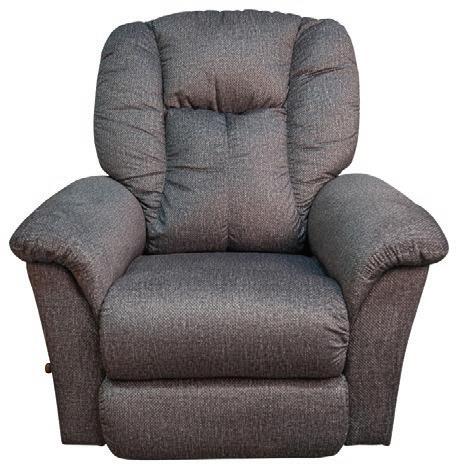

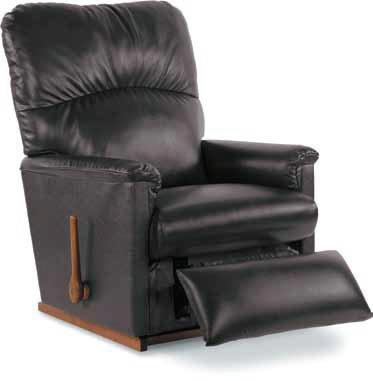







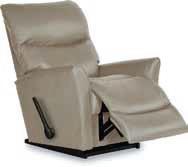


Continued from Page 25
Cross country comes to Juniata
Nine years have passed since the day Miller committed to coaching Baublitz in cross country and track at Juniata. Little did he realize that would also lead to the birth of a successful varsity program.
“I knew he had the tools to be a state champion, and I was going to give him 100 percent of myself to do my part to make sure he got there,” said Miller of Baublitz, who graduated as a threetime state champion in track. The Juniata runner also placed as high as second at the PIAA Cross Country Championships.
While Miller has been the coach for much of the program’s existence, Garry Price started it in 2017 and served as the first head coach for the boys and girls teams. Miller served as a volunteer assistant for that inaugural year of the fledgling program.
“I thought my niche with coaching was just working with a few serious distance runners that had big goals at that point,” Miller said. “I had some parents pushing me to become the head cross country coach in the summer of 2018 when Garry resigned. I was very hesitant because of working in State College and being unsure if my easy going ways would make coaching miserable.”

warm-up and stand idly by holding a clipboard, Miller is right there in the trenches with the Juniata runners. Perhaps, that’s what makes him so relatable. He admits he uses his athleticism to connect with his runners.
“One big advantage I have over many coaches is my ability to train with my athletes.” Miller added. “I have always done this from the beginning and don’t plan on stopping unless my health doesn’t allow me. I like to stay in shape myself and still compete when we don’t have cross country or track meets.”
One of the requirements of coaching distance runners at Juniata is being with his runners when they are training off school grounds. So, running or biking with them is one of the few options. It also keeps Miller in tip-top shape.
Miller was hired as head cross country coach for the 2018 season, with Shari serving as a volunteer coach. It didn’t take long for the program to hit its stride.
“I was confident that Juniata had kids that could run,” Miller explained. “I just needed to find a way to get them out for the sport. With me not working at the school, I rely on my athletes to help promote the sport so we can continue to be successful.
“A lot of kids that have running ability are in other sports and are not willing to give up a sport they have been doing a long
time to see how good of a runner they can be,” Miller added. “Regardless of how many kids we get out for cross country, the goal remains the same of being the best they can be.”
Juniata has dominated the Tri-Valley League,
winning eight-straight boys titles. After years of being second fiddle, the Indian boys also captured their first District 6 crown this year, earning their third-straight trip to states.
“I’m sure we will have times when we won’t win
districts as a team, but if I can have kids see all the benefits of running and working hard for something, it will be a successful season,” Miller said.
While some coaches watch their runners
“I figure I run about 1,500 miles a year with my top kids and bike another 800 or so over the summer,” Miller said. “I must be one of the few coaches warming up with the kids at big meets like districts and states.
See Miller / Page 27


Continued from Page 26
“I’m sure some think I’m crazy, but it’s time I can talk about racing without getting them too nervous,” Miller added. “To be honest, I feel mean when I’m making my kids do a hard workout and I can’t be part of it because of an injury or something that has me holding a stop watch. It is hard for me when I can’t train with them due to being injured. I don’t like it when I am sidelined.”
There’s also a pinch of coaching psychology at work, too.
“They can’t complain too much when their coach is doing the same workout when it’s 90 degrees out,” Miller explained. “It just shows them how passionate I am about the sport, and I don’t ask them to do something I wouldn’t do.
“I ride bikes with many of my runners in the summer, so I have a lot of time to get to know them better,” Miller added. “We don’t have to always talk about running. It can be a good conversation with my cross-country runner Joey Bomberger about cars. For many of my athletes, they become friends for life.”
Runners show their love
Former East Juniata product Logan Strawser ran for Miller under the Juniata banner for three years. Strawser credits Miller for much of his
success, including being able to run at the Division I college ranks for Penn State.
Miller made quite the first impression with Strawser when the two crossed paths for the first time just before the Newport Turkey Trot during Strawser’s sophomore year.
“One of my friends was on the cross-country team and wanted to do the Turkey Trot,” Strawser recalled. “I met Jeff about three weeks before that and got to know him. After I ran the Turkey Trot, he came up to me and said, ‘You could be really good.’
“I wanted to do cross country after that,” he added. “It took off from there.”
Strawser admitted he probably wouldn’t have come out for the sport if it weren’t for Miller’s involvement. “He’s had so much influence on our results and had such an impact on the sport and everyone on the team so greatly,” Strawser said.
“He knows how to train his athletes really well,” he added. “If anything, he undertrains us, so we stay healthy, but more importantly he makes it fun.”
Strawser graduated as a three-time PIAA silver medalist and a seven-time district champion in cross country and track field.
Juniata High School senior Wyatt Stroup echoed many of the same sentiments as Strawser, his former teammate. Stroup, who is bound for
Washington and Jefferson University which is just southwest of Pittsburgh, plans to run cross country and track at the Division III level.
Stroup was a threetime PIAA qualifier at Juniata and medaled the past two seasons. In track, he ran at states twice and medaled in the 3,200-meter distance race as a junior.
“You can’t get a better coach than Jeff Miller who will give you the time of day, to give you what you need training-wise and is so knowledgeable about the sport,” Stroup said.
“He will do anything in his power to make you love the sport,” Stroup added. “He wants everyone when they leave cross country at Juniata to continue a healthy, fit lifestyle for the rest of their lives.”
For as long as he can remember, Stroup knew who Miller was. His sister, Anna, was in the same class with Baublitz. She competed in the hurdles and Stroup, who was in elementary school at the time, always liked going to her track meets. In those days, though, he admits he was more of a “baseball kid.”
The pandemic was about to change all that. In eighth grade, students had to distance themselves, so physical education class activities were limited to running around the school track and playing soccer or cornhole.
“I thought it was cool to run around the track,
so I’d run like a mile during phys. Ed,” Stroup recalled. Soon after that, he was introduced to the Juniata Valley Striders and got his first real taste of running.
He met Miller during his second-ever 5K race.
“I saw him at the starting line, and he looked so serious and official with his Oakley glasses. I went out with him for 400 meters, but then I dropped down to my normal rac-
ing pace.”
Not surprisingly Miller crossed the line in first place, but Stroup had made a lasting impression. Especially, since he wore black clothes to race on a scorching hot day.
Miller also met Joey Bomberger at another race and took them both under his wing. The two high school runners have left lasting legacies, which are a credit to their coach.
“I believe he’s the best coach Juniata has in any sport,” Stroup said. “The commitment he has is 52 weeks out of the year. He will meet with us at any time, and run or bike with us.”
His runners also credit Miller’s training routine for their success as they’ve remained healthy. “His training is a great format for a high
See Miller / Page 28


Continued from Page 27
schooler,” Stroup added. “He shows you how to love the sport, gets you involved and makes sure you peak at the right time. He’s done all that himself in his 40-plus years of running, so he knows what works for a high schooler.”
Despite majoring in mechanical engineering, Stroup might try his hand at coaching some day and sharing Miller’s wisdom with others.
“I’d like to do the same thing that Jeff did for me, and do the same for hundreds of kids later in my life,” he explained.
No plans for slowing down
The sheer numbers that Miller figures to have logged are mind-numbing. By his best estimates, he has run more than 50,000 miles and cycled for another 130,000-plus over the past 40 years.
And he doesn’t have any intent of slowing down – running or coaching.
“I haven’t set any timetables for coaching,” Miller said. “I will continue to give back to a sport I love as long as I can afford to and have good health.
“I could easily be a seasonal coach just coming to Juniata for 12 weeks in cross country and 12 weeks in track, but I will not be giving 100 percent of myself and the results of my athletes will
show,” Miller added. “I’m an all or nothing type of guy. It’s a 48 week of the year commitment. I drive about 10,000 miles a year for coaching since I live in Lewistown, so it’s not cheap.”
Rules of running
Miller has put Juniata on the proverbial map with some simple rules:
-Getting athletes to like running by slowly getting them into shape, so they don’t get hurt.
-Mixing up runs, so they don’t get bored with the same routine.
-Encouraging runners to enjoy the process of seeing how fast they can get, regardless of ability.
-Providing an atmosphere where everything is positive, and everyone feels like a family to each other.
-Encouraging each other in hard workouts and races.
-Letting his athletes know that becoming a great runner doesn’t happen overnight, so staying consistent with training leads to a great progression with their times.
-Reminding athletes if they want to be good, it’s going to hurt at times, but pain is temporary-Training runners to only run all out a limited time throughout a cross-country season, so there’s enough gas in their tank when it matters at districts and states.
-Giving athletes 100 percent of himself yearround to help them reach their goals in high school.
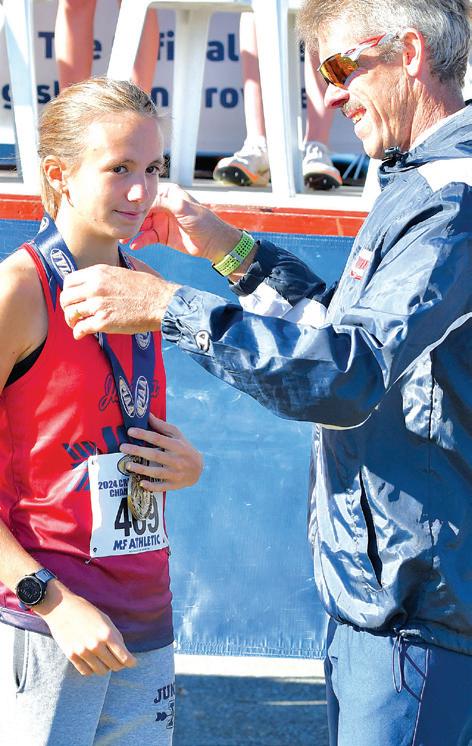
Miller presents a PIAA medal to runner Sylvia Brubaker at the 2024 PIAA Cross Country Championships in Hershey.
-Making certain athletes take necessary breaks after cross country, indoor track and outdoor track, so they stay mentally and physically fresh.
-Encouraging runners to be happy with a great race, but always setting the bar higher.
-Making friends with the competition. At the end of the day, runners are all out to be the best we can be. It’s the beauty of this sport; everyone encourages each other.
-Reminding athletes that if they want to be the best, they need to do all the little things like stretching, lifting, getting proper rest and diet and staying hydrated.
The finish line
Unlike most newer sports, the basic concepts and rules of running haven’t changed: a group of runners line up at the start, and the first person to reach the end
of the course wins the race.
It seems simple enough, right? After all, cross country is a sport that doesn’t require much equipment and that the rules are straightforward. Many runners also come into the sport unaware of the time commitment and dedication that is required.
That’s where Miller steps in. Every one of his athletes will tell you that running requires sacrifice. You must have the strength to give up a part of each day to undergo pain, soreness and exhaustion. Never slowing down. Finishing every workout to the best of your ability.
Constantly pushing yourself to do better and reach the goals you have set for yourself. Day after day, month after month, and year after year. And maybe, if you get through all that, you might just shave off a couple seconds from your mile time. Miller knows how to push the right button, connecting with his runners in a way that creates an unrivaled amount of success.
The amount of training and dedication that can go into a single race is unparalleled. Everything that you’ve prepared for is unleashed in its full potential. Nothing compares to the feeling of finishing a race, filled with adrenaline and elation, proud of what you and
your team has accomplished.
Cross country can be seen as both an individual sport and a team sport; you run for yourself, trying to get the best time that you can. At the same time, you run for your team, cheering and supporting everyone before, during, and after the race.
It is one of the few sports in which everyone – regardless of what team they run for – pushes each other to run harder.
Two runners on opposite teams could have been neck-and-neck throughout the entire competition, one beating the other by less than a sec-
ond, and both runners would still congratulate and applaud each other’s efforts. After all, neither one could have run the race as they did without the other.
One has to look more closely to appreciate the finer details of cross country running; details that make it the incredible sport that it is. I feel that the best way to actually enjoy running – the action itself, as well as watching other people do it – is to experience it yourself.
Miller is certainly in the center of the spotlight.



BY TOM LAUB Lifestyles editor tlaub@lewistownsentinel.com
RICHFIELD — His words appear frequently in The Sentinel’s Religion section. He has written and published several books. His interpretation of Scripture and theology has informed and educated readers around the globe. Yet, true to form,
he remains humble, a champion of God.
Lyndon Stimeling, of Richfield, did not set out to become a writer. The path to his current calling had a modest beginning in Juniata County.
“I grew up on a small chicken farm in Monroe Township, Juniata County, I guess you could say ‘up the holler’ from Kellerville,” Stimeling said. “It was a quiet com-

munity and an excellent place to grow up. It was backwoods to the extent that grass grew up on the middle of the road.
Lyn was the youngest of Cloyd E. and Mary E. Burdge Stimeling’s six children. He had plenty of company growing up with three brothers and two sisters. His father had experience in the chicken business and worked in hatcheries and other chicken farms in the community.
“When I was a young boy, Dad went into the layer business and built a large wooden building,” Stimeling said. “That original building is still standing and listed as a historical wooden building in Juniata County. Later in life, Dad also worked in construction as a cement finisher. I helped him uncover the cement on the spillway at Little Buffalo State Park. Dad also got into trucking logs and pulpwood for my brothers.”
“My mother was a fulltime housewife until I was around eight or nineyears-old, when she began working to become a nurse. She always read to us at bedtime but I usually fell asleep before she finished. ‘Pilgrim’s Progress’ was one of her favorite books and she read it to us as well.”
Today, mothers may be reading Stimeling’s books to their children.
“Common Thoughts on The Word” (2016), “The Eye of a Needle” (2017),
“Common Thoughts on The Word II” (2019) and “A Bridge Between” (2023) are all available at Amazon.com. He also has a Bible Study course entitled, “Studies of Faith.”
“The study helps people to understand the difference between a man-centered religion and a true God-centered religion where God is our focus and receives the glory instead of man.”
Stimeling said. “We also produce cards for various occasions with poetry on the inside.”
Though writing and educating came later, baseball consumed Stimeling’s life early on, with the help of domestic fowl.
“Growing up on the chicken farm helped prepare me for an exciting young life playing baseball,” Stimeling said. “My job on the farm was to get the chickens out of the trees and into the rain shelters. I often accomplished this by throwing stones at them in the trees or on the ground. The stones were meant to encourage them to


obediently go into the shelters before Dad came with the feed and water for the next day.”
“All of that stone-throwing got me into trouble when a stubborn bird would not go into the shelter. As it ran to avoid me, I threw a stone which caught the chicken in the side. I had no choice but to finish it off and get rid of the evidence before Dad got there. The stone-throwing helped to prepare me for pitching baseball
See Stimeling / Page 30




Continued from Page 29
for close to ten years. My career ended with legion baseball and sandlot ball. I still have my flame-treated bat supplied by D. E. Smith for legion ball.”
When Stimeling’s baseball career ended, he turned to more serious matters.
“After baseball was left behind, I went into the chicken business and logging,” he said. “L. B. Stimeling Logging and Poultry came into existence around 1976, after I had purchased a small chicken farm. The chicken business was eventually stopped, and my efforts were put into logging, log hauling, and buying logs and timber.”
“After marriage and the start of a family, I also became active in the local church. Because I was not a public speaker, I chose to communicate my thoughts through writing articles. My first writing attempts began in the late 1900’s, around 1989. My wife and I already had our five children when I started sharing thoughts through writing.”
It was Stimeling’s reluctance at one form of communication that opened the door to another. The Lord works in mysterious ways. Stimeling made the right choice and his success as a writer is confirmation.
“My inability to speak publicly led me to share
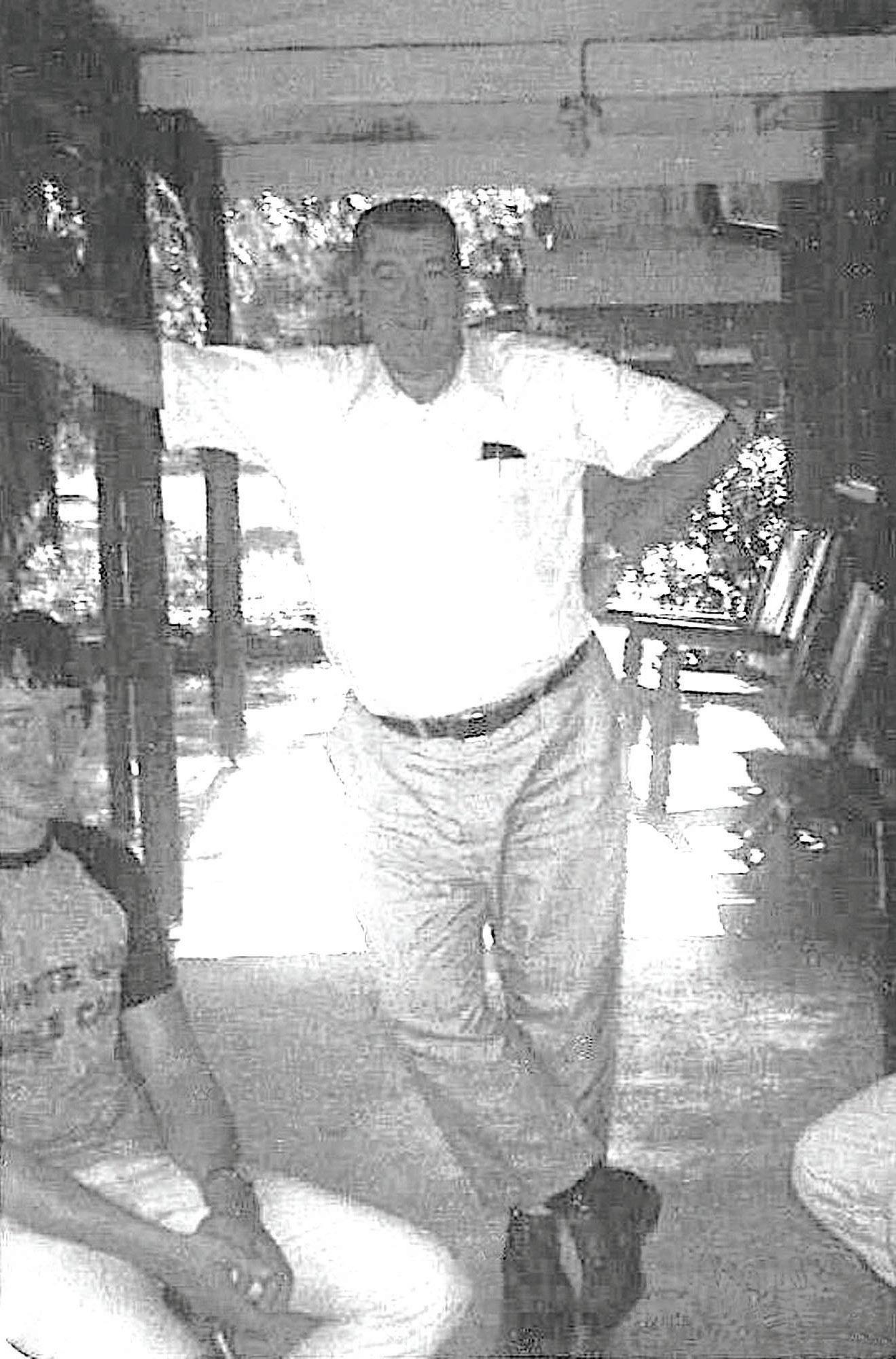
Historical Account of the South Juniata Baptist Church,’ which describes the numerical growth and the building program that the church went through,” he said.
Stimeling’s Sentinel columns appear several times each month, quoting Scripture and offering insightful analysis and thought on the church and religion itself. His writings and teachings are scholarly, having been filtered through first-hand life experience.
think,” Stimeling said.
“People often teach others (children, and people who attend church) what to think, which is a major problem. If we teach people how to think and why they should think, then they will be able to use their mental faculties, make judgments, and work through their problems.”
with others through writing short articles,” he said. “When South Juniata Baptist Church started a quarterly publication, I was asked to submit articles for the paper. Since I was already writing the articles, I began submitting a column for The Times as well. It did not become a full-time column until after Paulette Forry purchased the publication. It was around this time that I also began submitting to The Sentinel in Lewistown.”
He began writing for The Sentinel around
2016. As a freelance writer, he has written articles for several newspapers, helped supply information (poetry and photos) for several books published by The Sentinel and submitted articles for magazines. Stimeling also wrote a children’s book as an early attempt to get published, but he claims it did not turn out well. In retrospect, he admits he should have chosen a better ending for the book, but it was a learning experience all writers share.
“I also wrote ‘A Brief
“I do not have any formal training or college education,” Stimeling said. “However, God has providentially directed my life so that I have been involved in various churches and have been acquainted with some very important spiritual people. I recently began reading a book by John Reisinger, ‘Abraham’s Four Seeds,’ that he had given to me several years ago. John had been a friend of the family when I was a boy, he was my friend as an adult as well. I was unaware that John and his book were the subject of many YouTube videos. I also found out his small book was selling at a very high price. It is amazing how God sovereignly directs our lives for His honor and glory.”
The man who had trouble speaking in public has no trouble reaching people with written words. His thoughts and writings inspire others.
“My purpose in writing is to get people to

The feedback Stimeling receives proves he is on the right track, influencing those from all parts of the globe.
“I have received many emails and encouragement through written letters,” he said. “I am often asked for guidance and counseling on spiritual things. Some people send me a note telling me how my articles have affected them in a positive way. I have communicated with people in Africa, Nigeria, India, Canada and other places as well as the United States.”
“Along with being able to think and find truth, I want to introduce people to the gospel. I want to introduce people to the Jesus of the Bible, not the Jesus that people create in their own minds or have been taught in Sunday School. I want people to know the sovereign God of the universe and the Scriptures. I want people to know themselves for what they are and who they are. Not what they like to think they are! People will never turn to Christ and the gospel until they see themselves as wretched sinners who need a savior.”
See Stimeling / Page 31





Continued from Page 30
Stimeling feels no pressure to write another book but he has not completely rejected the idea.
“If I did another book, it would be a collection of all the articles on Church Growth,” he said. “The church is spiritually dead today, for the most part. It appears we need a cleansing and a refocusing of our purpose as a church.”
Like all of us, Stimeling sees the world today and has his opinion, including
a view of religion in the worldwide scope.
“I believe religion has increased, but followers of Christ have decreased,” Stimeling said. “John Piper said it well when he made this statement, ‘Everyone claims to be a Christian today.’ The adulterous housewife who goes to prayer meeting to stay hooked up to her lover, the greedy person who uses the church to get business and make money, and the pastor who is only concerned about his income, insurance, and retirement, are just a few of the problems in

Submitted photo Lyn in grade school (grade 5-6).
the modern church. God is no longer first in our lives.”
“From the first to the fifteenth century, when people wanted the Word of God, they would gladly die for it. Bloody Mary lit up her gardens at night by burning Christians, she hated the Protestants and those who would not submit to her demands. Today, instead of people desiring God and His Word, people have become their own god, they are at the center of everything they do. Our country needs a Godsent revival that changes the hearts, minds, and wills of men.”
Stimeling has touched people all over the world, spreading God’s Word through books and columns. Like the young boy who chased chickens and played baseball, he remains humble.
“I would like to take time to thank The Lewistown Sentinel as well as the Times for giving me the opportunity to minister to others through the religious columns,” he said. “It has been a long journey but it was worth the effort. One time I was searching for information on Google and started reading an article. I soon realized I was reading my own material. It was hard to grasp the truth that people around the world were being influenced and encouraged by my writing efforts.
Hopefully, Lyndon Stimeling will be influencing people for a long, long time.



BY GREG WILLIAMS Sentinel reporter gwilliams@lewistownsentinel.com
BURNHAM – Everyone has their own reasons for joining a sports team. Many people start playing football, basketball, baseball or another sport due to its national popularity.
Some people are drawn to certain sports because of the fame associated with the game. And some kids join sports simply because their friends do, and they view it as a social outing.
Swimming can certainly be a difficult sport to sell to parents or kids. Swimming isn’t a sport that is commonly featured on SportsCenter. It doesn’t always promise fame or fortune to its athletes – besides Michael Phelps or Katie Ledecky – most people can’t name one Olympic swimmer.
And above all else, swimming is a sport where the athletes have to be extremely devoted to experience the highest levels of success. So why then should kids join a swim team?
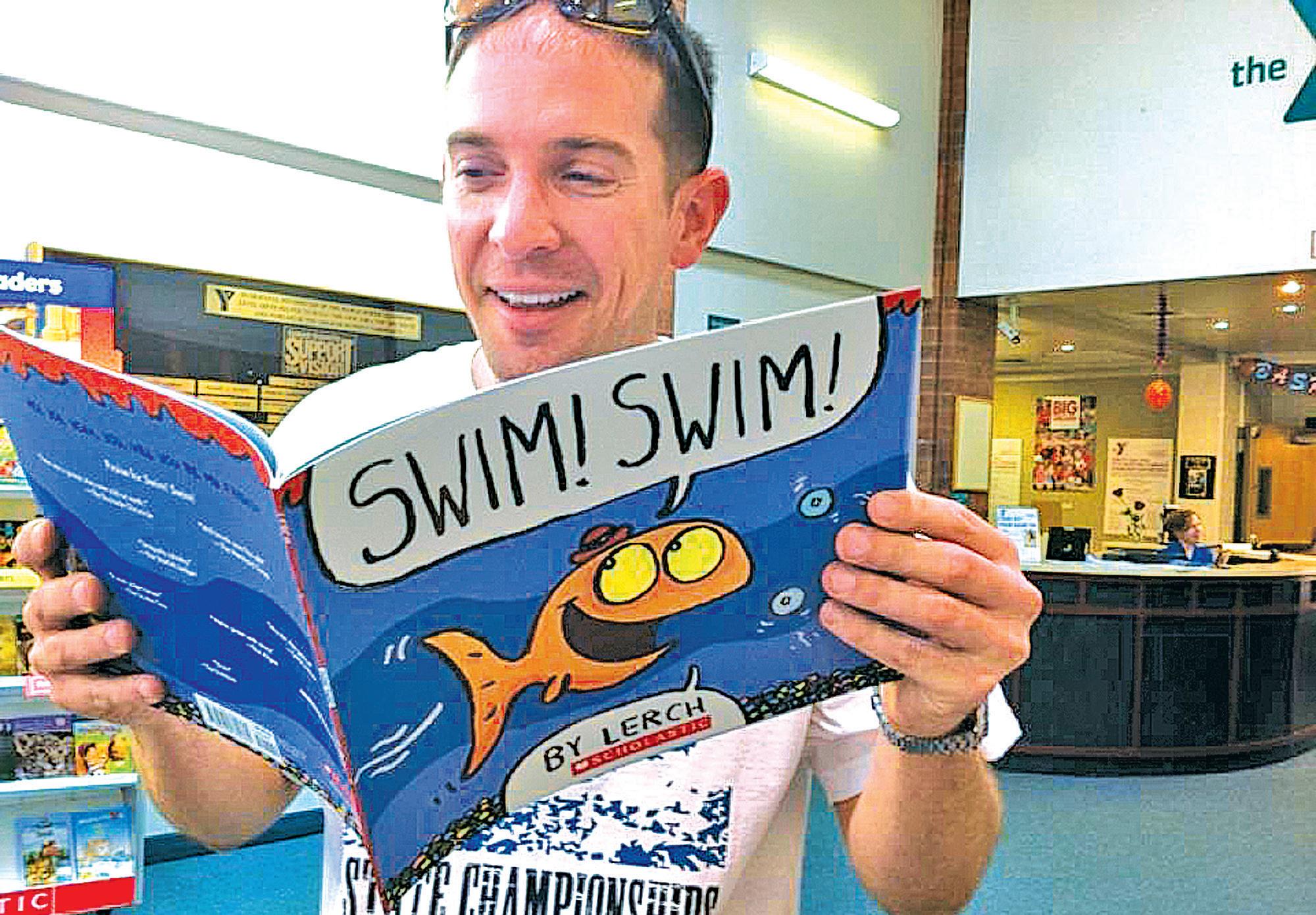
That’s easy, just ask young Abigail Simpkins, who joined the Juniata Valley YMCA Stingrays Swim Club at least three years ago. She has become a champion of the sport, encouraging others to give swimming a try.
“I’ve always loved the water and, therefore, wanted to swim,” the youngster explained. “It has improved my technique and my endurance immensely.”
As one of the veteran swimmers on the Stingrays, Simpkins describes the team as “basically one big family.”
For swimmers, like Simpkins, there are no other sports that show individual improvement quite like swimming. For so many kids, see-

ing something that is concrete, such as dropping time in an event, opens their eyes to how much better they’ve gotten. When they can see a measured improvement, it can become a huge confidence boost.
“It’s hard, but fun,” Simpkins added. “I tell myself I can do it and I listen to my coaches.” Simpkins’ favorite event is the 500-yard swim because she likes competing the distance events as well as simply “the feeling of the water,” she explained. Her best sage advice, “Never give up. You are stronger than you think you are. Everyone will try to help you.”
No matter where they stand – on the blocks or in the stands.
“I cheer them on and tell them that they can do













it,” Simpkins added.
And many of those teammates certainly did the same for Simpkins as many stayed to cheer her on during the 1,650-yard event, also known as the mile, which is 66 lengths of the YMCA pool.
Simpkins swam in this event, which is the last event of the swim meet, and many of her Stingray teammates stayed at the meet after all of their events were over so they could root her on.
better fortunes for the Huskies.
Easton Herb: Fast and the furious Easton Herb signed up for the YMCA swim team six years ago because he wanted to try something different.
“It’s made me a way faster and smoother swimmer,” Herb said. “I also learned two strokes I didn’t know.”
advice, “(Coach) A.J. (Aaron Shepherd) is tough, but he just wants to make you better.”
Grace Flood: Hope for the best
Grace Flood has been a Stingray for five years. Like the others, she had a list of sports to pick from and chose swimming.
that meant joining the swim team. “It has made me more precise with my stroke, and I am a lot faster than when I first started,” Reigle said.
beat my previous times.”
Continued from Page 32 See YMCA / Page 34
“I thought that was cool,” said Juniata Valley YMCA Executive Director Victoria Searer, who said the Stingrays have remained one of the YMCA’s most popular activities over the years. The club serves several age groups: ages 13 to18 compete for the Stingrays; ages 9 to 12 for Stingers; and ages 8 and under for the Baby Rays.
Typically, the swim season begins in early November and runs through February. The Stingrays program has solid numbers of swimmers diving into the pool for years, while the Mifflin County High School swimming program has floundered. This year, a lack of numbers forced the cancellation of the season.
At some point, hopefully the Stingrays’ success from a numbers standpoint will lead to
The best part of being on the team for Herb is that he gets to swim with his friends. But it’s not all fun and games as a typical practice consists of warm-ups, drills, conditioning, turns, diving and a cool down, Herb explained.
When times are tough in the pool, he draws motivation from his family and others.
“My mom motivates me to get through it,” Herb added. “Also, the coaches and friends.”
His favorite event is the 50-yard freestyle, but all the shorter events rank at the top of his list.
“I like the fast-paced sprint races,” Herb said.
Despite being young, he has a set routine to prepare for swim meets: Eat a good breakfast, listen to music and get a good night’s sleep.
When he isn’t in the pool, he also remembers to support his teammates: To “cheer them on while they swim and congratulate them after.”
As far as advice for anyone new joining the ranks of the swim team, Herb offers some sage
So far, she’ll tell you she made the right choice. “I learned how to swim really fast and I improved my strokes,” Flood said of how the swim team improved her skillset.
The best part of swimming is “you get to make friends and you get to spend a lot of time with them.”
When it comes to staying motivated, that’s not a problem for this young swimmer because “I just push through and hope for the best.”
Like others, Flood also has a routine when it comes to preparing for meets. “I pack five towels in my backpack the night before, I wake up at 6:50 and leave.”
As an ambassador for the program, she offers wisdom for prospective swimmers: “Practice. Have fun,” Flood explained.
And, of course, between events, she never forgets her teammates in the pool. “I cheer for them,” Flood said.
Ryann Reigle: Focus on getting faster
Ryann Reigle has always been a good swimmer, but three years ago
The best part of being a member of the swim team is being with friends. A typical practice for her is “an hour and a half of focusing on technique and speed.”
The motivation is easy for Reigle whose focus is to “keep trying to improve my times to make it to districts.”
As far as events go, the 50-yard freestyle ranks as Reigle’s favorite. “I try to keep getting faster to

As far as preparing for meets, Reigle’s approach is simple: “I think about what strokes I am going to swim and how I can improve on my times.”
Prospective swimmers just have to give swimming a chance – no matter the tough times. “It’s hard,” Reigle said. “Just keep practicing, so you can do your best.”
Cheering on teammates is also a must, Reigle said, “Give them encouragement and cheer for each other.”
Theo Wieseman: Passing on swim genes

Young Theo Wieseman joined the swim team five years ago because he comes from a family with other swimmers.
“I like to swim,” Wieseman recalled. “My mom was a part of a swim team and suggested I try the swim team at the YMCA.”
It’s a decision he was glad he made. So far Weisman has improved his skills in the pool dramatically, especially his endurance.
“When I first started swimming on the swim team, it was a challenge






















































































































































Continued from Page 33
to swim two lengths of the pool, but now I am able to swim the 500, which is 20 lengths of the pool,” Wieseman said. “Also, I have learned to set goals for myself, and I have more confidence in myself.”
The best part of the swim team for Wiesman is a common answer: “I like swimming with my teammates and cheering on my teammates during the swim meets,” he added.
A typical practice for him starts with a warm up then three or four sets. At the end of practice, Wiesman will sometimes work on his starts and turns then do a cool down.
“I motivate myself during a tough practice with the help and encouragement of my fellow teammates,” he explained.
His favorite event is not surprisingly his best event: 100-yard breaststroke.
“I make sure to work hard at practice,” Wieseman said, sharing the secret of his success to others. “The night before the swim meet, I usually will eat a dinner of pasta, get my swim bag ready and get a good night’s rest.”
He also said it’s important to support and encourage teammates during a meet. “I will stand at either end of the pool and cheer them on,” Wieseman added.

Y officials, parents and swimmers. “Greatness takes time,” Shepherd explained. “Swimming is all about the relationship with the water and making it work for you.”
That’s the way he was taught by his YMCA coach, Chic McKnelly. “He always believed in me,” Shepherd said. “Patient man who taught me the fundamentals of swimming and how to execute races.”
are not surprising. Shepherd has his sights on the continual growth of the Stingrays.
“Grow into a yearround program,” he said.
“Get kids to the Y state meet and national meet.”
And for newcomers, he cautions, “I would tell the person to try his or her best and not to give up when it gets hard.”
Since Aaron “AJ” Shepherd, 47, started coaching at the Y in 2017, he and his staff have been trying to build the excitement for swimming at the high school meets from a young age.
“We have a higher number of middle and junior high school numbers that are planning on continuing swimming through high-school age,” said Shepherd, a southeastern Pennsylvania native.
Since he started, the size of the Y swim team has increased in numbers and has plateaued. There are 38 swimmers on the team this year, ranging in age from 6 to 17.
Practices are held four days per week for their season, which starts in December and runs through February. The postseason usually starts in March, with the district meet.
The Juniata Valley program is the southernmost program in the 10team CENKEY YMCA Swim League, which spans westward to Clarion County and northward to Ridgway and East Lycoming. The other programs are located in Bellefonte, Brookville, Clearfield, DuBois, River Valley and State College.
“Growing more successful each and every year, we had seven kids qualify for the Y district meet in the spring,” Shepherd said. “Each season our kids continue to drop time and master their skills.”
He asks for patience and perseverance from
He swam at the Southern Chester County YMCA in high school and Shippensburg University in college. As far as coaching goes, Shepherd has guided his Y programs since high school, along with the Florida Atlantic swim team, Kennett Area YMCA, Kennett High School, Arundel Swim Club, Juniata Valley YMCA and formerly for Mifflin County High School.
When he started at the Juniata Valley YMCA, Shepherd’s first focus was on “building the relationships with the athletes and watching them develop into their top form.”
His most memorable achievements or milestones as a coach aren’t about winning trophies or titles. It’s simple: “Anytime an athlete qualifies for the next big meet, be it nationals, districts or states, and seeing them shine,” he said.
The most rewarding part of coaching for him is connecting with the community. His goals for the YMCA program
Besides Shepherd, the Stingrays have three other coaches: Assistants Chris Uhlig and Sarah Wieseman and volunteer Brian Simpkins.
Uhlig has been coaching for two years, while Wieseman served for the past three years.
Both have swimming backgrounds as Uhlig swam for the State College YMCA and Wieseman at Millersville University.
Although Simpkins does not have a back-
ground in swimming, he brings a unique perspective to the program as all five of his kids are on the team. “Brian and his wife Kara go above and beyond all swim season long for our swim team. They volunteer and help coach as well as setting up and running the home swim meets.”
Whether it was his kids or others, Simpkins was inspired to become a coach by spending time with amazing young swimmers and making sure that they learn to love the sport. He shares the same goal to see the team and program continue to grow. “I want to see us swim in larger meets and host some larger meets to show how incredible our facilities are,” Simpkins explained.










I have been going to the Port Royal races for nearly 64 years. Back in the day, for a price, a driver would take you a couple laps around the track in a two-seater race car. I was fortunate enough to be able to ride
with my favorite driver, Keith Kauffman from Mifflintown.
Keith was well known in the racing circuit, winning numerous races. I became friends with Keith and enjoyed cheering him on every week.
He was always kind to his fans and would take the time to chat with them. He also would pose for a picture anytime he was asked.
Submitted by Ronald “Red” Aurand, Lewistown

“Some













BY MINA PHILLIPS Sentinel reporter sports@lewistownsentinel.com
HERSHEY — To be a champion is not only defined by winning awards or trophies but also by the resilience and the courage to face new challenges and hardships every day while committing to continuous improvement.
A champion, regardless of stature, will celebrate victories while also preparing for the next challenge. A champion serves as a leader and an inspiration to those around them while inspiring people through actions and expertise.
There are no specific qualifications to becoming a champion. However, you must be able to work hard and remain persistent.
The Hershey Bears’ coaches and players know how to do just that. The Bears are a professional ice hockey team located in Hershey, Pennsylvania. The Bears are famously known as the back-to-back Calder Cup Champions in 202223 and 2023-24. These wins defined the Bears two years in a row. However, the meaning runs a lot deeper for head coach and former Hershey defenseman, Todd Nelson.
Nelson is one of three people in league history to win a Calder Cup as
a player, assistant coach and head coach.
“In my eyes, first off, you have to have the right attitude, you have to have swagger, you have to be a professional where you come to work everyday and make yourself better each and every day,” Nelson explained. “You always have to thrive higher and higher every time you come to work. That’s one of the things that we can teach, you can teach winning, and how you do that is you have to have a tight-knit group. I know it is cliche but it’s really important especially in the game of hockey, and that’s not just the players it’s everybody involved. A champion is someone that never quits, you learn from your mistakes and you make yourself better. You have to be tremendously unselfish. If you get to a point with your team where the players are playing hard for each other and not themselves, that’s when you will have success.”
Winning one title is a battle and challenge of its own. Winning two titles back-to-back is something most people will never experience. Getting to a position to win a title is the hardest thing the team has to learn how to do.
“From my personal career, the toughest one to win was the first one, because a lot of people
don’t win championships, and so the first one is just when you are trying to get to the top of the mountain and you finally climbed it and you are at the top, and you got it done, and you can be proud of your accomplishment. The second one, they knew how to win, they knew what it takes and they knew how hard it was going to be,” Nelson said. “When you don’t win championships it doesn’t seem like it’s achievable, but when you do win, it’s gratifying. It gives you a thirst and a hunger for more.”
After winning anything once, it is easy to get lost in the thrill. Nelson had to ensure that his team stayed motivated and humble in order to win their second title.
“The game of hockey is very humbling,” Nelson said. “It doesn’t matter how good you are. You have to keep on striving for the next level. We have had a couple games this year that have brought us back to reality. If you are too cocky and arrogant, teams are going to knock you off. That’s just the way life works.”
“Attitude is first and foremost,” Nelson said. “You are going to go through ups and downs and you have to be positive the whole time. Your character and who you are as a person, work ethic, if you can outwork the
other team, you usually win.”
All of these qualities factor into how he creates a team that can go onto the ice and win titles.
These qualities do not only apply to a hockey team, they also apply to any sports team, musical group, or any individual who is hoping to reach the greatest achievement in their field. Champions are not only a team that gets to stand at the top of the podium, but also anyone that is willing to put in the work, stay sharp, give it their all every day, and go through hardships while remaining positive and keeping a good outlook.

Calder Cup following Hershey’s 3-2 overtime victory over the Coachella Valley Firebirds in Game 7 of the 2024 Calder Cup Finals.

The person I’m going to discuss was a champion, but for reasons other than having multiple trophies on a shelf or medals hanging on a wall. No, this man was a champion of a journey no one should ever face. That journey was a cancer journey.
On Dec. 13, 2016, my late husband, Reed T. Henderson, was diagnosed with colon cancer following what we thought would be a routine colonoscopy. The surgeon informed us that same day that Reed had cancer in his sigmoid colon. He said he’d seen it enough times before to know that it was cancer, but of course, they would send the biopsy away for further testing. The next few weeks were a complete blur as we were sent back to Mt. Nittany as well as to Danville for many more tests and procedures to determine if the cancer was anywhere else, all while trying to take in the festivities and remain optimistic during the most wonderful time of the year with two young sons at home.
On Dec. 23, it was revealed that the cancer had already metastasized to Reed’s liver and there were approximately 48 lesions on his liver that they could count. By early January, we met with an oncologist in Danville. She suggested that Reed proceed with chemother-

apy treatment and forgo any surgery, due to the fact that it had already spread to the liver. If he would have surgery, this would delay any treatment for 6-8 weeks until which time he would be healed. He also was experiencing no pain, which solidified the doctor’s decision about moving ahead with treatment. She told him, “We’re gonna hit it and hit it hard and see what happens.”
And hard it was, but here’s where the champion part comes in. Reed never complained of pain, of being nauseated and only every once in a while, talked of being tired. He continued to go to work daily and operated Kish Printing, the business we had acquired just a few short years earlier. In fact, he not only ran the printing business and assisted me with my funeral home business in Belleville, he also coached the Kish Indians pee wee football
house. Lastly and most importantly, he taught them how to take care of their Mom and be good, responsible men, even though Eli, our youngest, was only 11 at the time of his father’s death.
team. He would spend his evenings on the football field, running plays with the boys and teaching them what they needed to know to become champions on and off the field. He would tuck his portable chemo bag under his shirt, so that the boys didn’t notice he was wearing it, because 8-10 year old boys are very curious, and they weren’t there to talk about Coach, they were there to learn about football.
Along with coaching football, he also helped to coach the little league baseball team our son was on at the time, assisted our oldest son with obtaining his accounting degree from Shippensburg University as well as perfecting his skills at archery and rifle hunting for deer and turkey. He took time to teach our sons the importance of gun safety, how to properly use a chainsaw, and how to fix and repair multiple things around the
Reed’s chemotherapy regimen continued for the next five years, with no more than a two-week break at any given time, until sometime around September 2021. He was receiving an oral chemotherapy treatment and they discovered that it was no longer effec-
tive and the cancer was spreading. His local oncologist in State College informed us that there was one more oral chemotherapy treatment that he could administer to Reed. That was all that was available for his type of cancer.
In the early weeks of October, he began the final treatment. He became quite ill, so he decided to discontinue the treatment and live out what were his last days feeling half decent, celebrating the holidays with
his family. He had an appointment at Fox Chase in Philadelphia on March 4, 2022 to see if he was a candidate for a clinical study they were starting, but he succumbed to his cancer and went to be with our Lord and Savior shortly after midnight on Feb. 17, 2022. That day, our champion became our hero and our hero became a memory. And that’s a memory we will never forget.
Submitted by April D. Henderson, Belleville






























BY TOM LAUB Lifestyles editor
tlaub@lewistownsentinel.com
LEWISTOWN — Preserving history is a perpetual effort to document mankind’s existence. Sharing history is a vital component of the legacy we pass to future generations. We should all be aware of who and what came before us.
Local historians, including many volunteers, spend hours researching information and presenting artifacts and displays that tell our story from the area’s earliest days.
At the Mifflin County Historical Society, the tasks range from overseeing local landmarks such as the McCoy House Museum in Lewistown, to delving into new items of









interest that are added to the county’s collection. The work requires an eye for detail and a devotion to local history, special characteristics found in the MCHS staff members.
Ed Arnold and Dee Miller, a husband and wife team, are just two of the volunteers serving the community on the historical society’s board of directors.
Arnold retired from Frey Motors ChryslerDodge-Jeep-Ram in December 2021. Miller completed a nearly 39-year career with the Bon-Ton Department Stores in Lewistown, York and lastly in State College when it closed in April 2018. She then joined her husband at Frey Motors until her retirement, also in Decem-







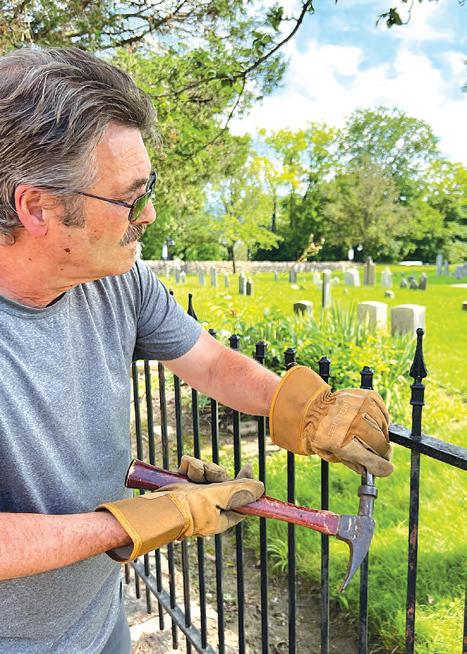
volunteering at the McCoy House Museum.”
The museum, which is listed on the National Register of Historic Sites, is located at 17 N. Main St. in Lewistown.
ber 2021.
With time on their hands, volunteering seemed like the right choice. The historical society was the obvious choice.
We have been attending historical society





banquets for a number of years which always feature interesting speakers in addition to a fantastic meal enjoyed with pleasant company,” Miller said. “ We thought it would be fun to become members, which led to
“Dee followed her interest in cemetery exploration by attending a workshop on cemetery preservation at the African-American Memorial Cemetery in October 2021,” Arnold said. “At that time, she met the renowned historic cemetery craftsman, John Appell, of Atlas Preservation, located in New England.
The call to history was the perfect fit. Miller has an interest in historical photography.
“There is a phenomenal collection of historic photographs in the George Frysinger Memorial Library, commonly referred to as the research library,” she said.
The library is located in the Historic Courthouse on the Square in downtown Lewistown.
Since becoming volunteers, Arnold and Miller have been involved in several preservation projects
See Volunteers / Page 39
Appell later returned to do additional preservation work at the Old Town Cemetery in Lewistown in October 2022. Miller invited Arnold to participate during the work session at the cemetery. It was at that time that the couple became interested in preserving the Old Town Cemetery, a significant historic property in the heart of Lewistown.









































Continued from Page 38
“We are involved with McCoy House activities such as meeting, greeting and assisting visitors during events such as Museum Day, Goose Day and the Ice Festival,” Miller said.
In 2024, Arnold became the project manager for the Old Town Cemetery restoration with the assistance of Miller and many others who contributed their time and effort to the project. The couple also worked with the United Way Day of Caring volunteer team from Trinity Plastics. The team provided help with fence painting at the Old Town Cemetery.
Arnold and Miller enjoy the work and the significance of their efforts plays a role.
“We feel it is important to preserve our local history, so the story of our community is kept alive for future generations in order for them to understand the people and events that have shaped our area,” Arnold said.
“We met fourth grade students who, during a school tour of the McCoy House Museum, showed an interest in our local history. There were also high school history club students who joined us to be volunteer guides during the Ice Festival. We are delighted to see the interest from students in preserving our local history.”
Plus, it is never too late to learn.
“We have learned a lot of very interesting local history as well as discovering sources of information available to anyone interested,” Miller said.
“A big takeaway is that you do not have to be a history expert to enjoy the volunteer experience at the Mifflin County Historical Society. We have also learned that there are many very dedicated people who keep the historical society up and running. The society officers, board members and administrative staff, plus the network of knowledgeable and tireless volunteers are all truly amazing.”
The historical society is always on the lookout for interested individuals who would like to donate their time.
“We are always looking for volunteers to assist with the McCoy House Museum, event planning, fundraising activities, the new Hoopes School site and more,” Miller said. “There are many ways to be a volunteer such as helping set up or maintain displays, basic grounds clean-up and maintenance at any of the historical society properties. Plus, researching local historical information is always important.”
Arnold and Miller have worked closely with historical society staff.
A true bond has been formed with many, including President Forest Fisher,

Restoration work on the Dorcas Holt Buchanan gravesite in the Old Town Cemetery in Lewistown was completed in October 2022. Pictured are, John Appell, of Atlas Preservation, kneeling; standing, from left, Ed Arnold, Dee Miller, Forest Fisher, Mifflin County Commissioners Kevin Kodish, Mark Sunderland and Rob Postal, and county employee Brian Haubrick.
Vice President Jenny Landis and Administrator Cheryl Bilinsky.
“They have provided a warm welcome and provided guidance and support along our journey,” Miller said. “We were invited to become members, and we truly appreciate the opportunity to serve in this capacity.”
Despite the commitment, Arnold and Miller do not consider themselves champions of history.
“Champions? No. Volunteers? Yes,” Miller said. “At the end of the day, we are simply volunteers who enjoy participating in this community as do many others.”
Our local history is filled with glories of the past. There is much to be learned and much to be gained.
“The George Frysinger Memorial Library has a massive collection of local history,” Miller said. “It is a great source for books on local history for sale, as well as genealogical research information available upon request.
The volunteers who operate the library have many years of combined experience to provide insight into family research and local history. If you are thinking of becoming a member, please join us. All input and volunteers are welcome, you will enjoy the experience. A
membership is an opportunity to open new doors and explore the events and fascinating characters who have been part of defining our area since the first European settlers in the mid-1700’s.”
The historical society’s motto is “Preserving the Past For the Future Since 1921.” History never gets old.
“Stay curious,” Miller said. “The fun never ends.”
To contact the Mifflin County Historical Society, call (717) 242-1022 or email office@mifflincountyhistory.org.
















BY GREG WILLIAMS Sentinel reporter gwilliams@lewistownsentinel.com
MIFFLINTOWN –
Ask Margaret McCann and she will tell you that dance is an absolutely essential element of who we are as humans.
It is an art form that has been a part of civilization since history was recorded. In its breathtaking beauty and diverse array of styles, dance is a way of connecting people to each other, past, present and future.
It is transcendent, and yet culturally divergent, and to some societies it is as important as language itself as a means of self-expression.
“Dance has enriched my life in so many ways, and I strive to pass this on to my students,” said McCann, who has owned the Margaret McCann School of Dance for more than 50 years. Since the 1980s, it has been located at 114 Bridge St., Mifflintown.
She opened a studio in Harrisburg before she moved here and was in two other Mifflintown spaces before buying her current building.
“I hope that I have been able to open some new doors for them, grow their appreciation of the arts and instill the ethic of hard work,” McCann added. “I hope they walk out of dance class a

ballet.
“I was fortunate to be mentored by Caroline Delone of the Harrisburg Civic Ballet, where I studied methodology,” McCann explained.
“I have never stopped studying,” McCann added. “I am an honors graduate of Dance Masters of America’s teacher training program at Kent State University and Central PA Youth Ballet Teachers Program, among many others. I am currently working with a master teacher in an international ballet program.”
She believes dance classes are an excellent source for gaining strength, grace, physical fitness and body awareness. Students are given opportunities to perform, learning to express themselves in a confident manner in front of an audience. McCann and her instructors instill responsibility, teamwork, excellent work ethics
and self-discipline in students; they have fun while working hard.
“We believe in teaching respect for the arts,” McCann said. “We believe in teaching ethics to our young people. We believe in practicing ethics professionally; therefore, it is our job to furnish a good education with a caring heart and a giving hand. We value the opportunity to be part of each of our student’s lives.”
She also views children as a vital part of the future and a most precious resource. “They should be exposed to high quality and excellence in all that they do.”
McCann said the school prides itself in bringing out the very best in each dancer. “We happily contribute to the development of not just good dancers, but of good citizens and caring hearts,” she added.
See Dance / Page 41
little healthier, more confident and ready for new challenges.”
While the school has provided dancers with proper training for nearly half a century, McCann’s
goal is also to build respect, confidence, imagination and friendship skills in students while providing a well-rounded, age-appropriate dance education.
The long-time dance instructor grew up in the Harrisburg-Hershey area.
By the time McCann graduated from Bishop McDevitt, she knew she was destined to teach




Continued from Page 40
McCann inherited her love of music and theater from her mother, who started her in dance as soon as possible at age 4. She would attend dance lessons, while her brother took music lessons. Her three sisters also tagged along and ended up dancing, too.
“She was our biggest supporter and continued to be in row A, seat 101 at every show until she was no longer able to travel at age 95,” McCann recalled.
As a teenager, McCann caught the teaching bug while in dance class.
“When I was 15, my teacher ran short on staff,” McCann explained “She asked me to fill in.
Immediately, I fell in love with teaching as much as I already loved dancing.
She began teaching me how to teach along with my regular classes and soon assigned me classes to teach for her each week.
“By the time I graduated high school, I knew I wanted to have my own school,” McCann added.
“I started my school in Harrisburg in 1970.”
And her dream seemed
to come true. Until one fateful day, a nuclear disaster forced her to reassess her situation and put her family first.
“My second child was born a few days after the Three Mile Island accident in 1978. It scared me as we lived between Harrisburg and Hershey,” McCann explained.
“I wasn’t familiar with Juniata County until we started looking to move somewhere safer,” McCann added. “It was –and still is – so beautiful here, we knew this was where we wanted to be.
I sold my school in Harrisburg and moved here thinking I would give up
teaching but it wasn’t long before I started again in this area.”
Years later, she couldn’t imagine teaching dance anywhere else as she has influenced so many lives by introducing them to the arts.
“Truthfully, I never really thought about it,” McCann said. “I am honored to have been a part of the lives of so many past and present students.
“It brings me great joy to be teaching a new generation of dancers as I taught their mothers,” McCann added. “There are four home-grown teachers in my school. It
is a source of great pride that these women – all my students since age 4 –want to share their dance experience with our students. I am humbled by the support my school receives from our dance families and the community.”
McCann loves every minute that she spends in the dance studio. The arts are so intertwined that she couldn’t fathom life without them, at this point in her career.
“I love the culture, the music, the work, the costumes, the little shoes – everything,” McCann claimed. “Often when I’m teaching a class, the
students are totally immersed in their work, it’s quiet and beautiful music is playing, I think to myself, ‘There is no place I’d rather be right this very minute.’”
It’s been that way since day one for McCann.
She hopes her students never lose their sense of wonder. Whenever one door closes for them, she hopes one more opens. She just asks that they promise her that they’ll give dance a fighting chance.
And when they get the choice to sit it out or dance, she hopes they dance.
























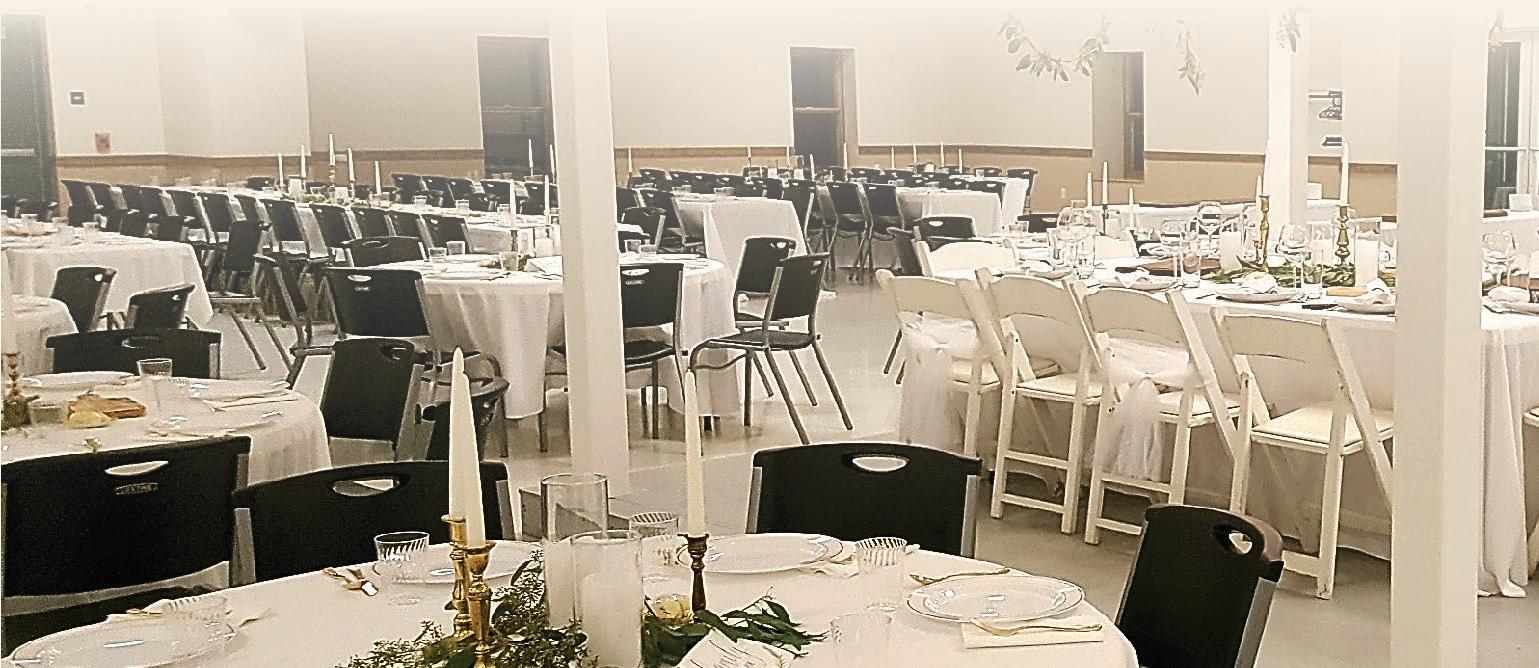

BY BRIAN CARSON Sentinel reporter bcarson@lewistownsentinel.com
[Editor’s Note: This article was previously published in the Nov. 4, 2024 edition of The Sentinel].
HERSHEY — Carter Smith sprinted through the finish line at Hershey’s Parkview Course in 15:41, becoming Mifflin County’s first PIAA state champion in cross country — a historic milestone for a county that has produced numerous collegiate runners but never a state champion until Saturday.
The junior secured the Class 3A title with a blazing 5:03 per mile pace, capping a near-perfect season where he defeated 1,702 of the 1,703 runners he faced — his lone defeat coming by a tenth of a second at the MidPenn championships. His championship run exemplified the dominance he displayed throughout the fall campaign.
“The race was crazy. From the gun, I’ve never experienced anything like it,” Smith said. “It was awesome.”
A championship parade has been scheduled for Carter today, starting at Red’s Diner at 5:30 p.m. and ending at the high school around 5:45 p.m., school officials said Sunday. A recognition program will take place
in the high school commons at 5:45 p.m.
The championship race tested Smith’s focus early when one of the Mazzeo twins fell on the first downhill. Many runners might have lost concentration or momentum after witnessing a competitor fall, but Smith maintained his composure. “That could have been me during the race,” Smith said. “You have got to keep pushing forward.”
The final stretch evolved into a battle between Smith and Nick Mazzeo, with Smith unleashing an extra burst of speed around the last corner. His motivation stemmed from a previous track championship experience where he came up short.
“Going through my head was the outdoor 800 state championship,”
Smith said. “I got outkicked by two people, and I kept telling myself not to let that happen again and to keep pushing through the line.”
The victory adds to Smith’s growing collection of PIAA medals, marking his emergence as one of Pennsylvania’s elite runners. In the past year, he captured the indoor 800 state championship and placed third in the outdoor 800 before securing the cross-country crown. This triple-threat of achievements across different

Joey Bomberger secured 24th place in 16:48. Midd-West’s Ben Hummel claimed fifth place, crossing the line in 16:19.
In the girls’ Class 2A race, Juniata sophomore Sylvia Brubaker earned a 10th-place medal, completing the course in 19:22 with a 6:15 pace.
ship as a stepping stone rather than a culmination. “It’s going to elevate my game, and it’s going to be amazing,” he said. His trajectory suggests more accomplishments lie ahead in both track and cross country.
running disciplines showcases his versatility as an athlete.
After crossing the finish line, exhaustion overtook Smith before the magnitude of his achievement set in. “Right after the race, I was cooked,” Smith said. “But when I got back to the tent, I was thankful for everybody. I got emotional with my family.”
His coach, Alex Monroe, recognized the perfect execution of their race strategy. “It was pure dominance, and it’s largely due to everything he poured into this one dream and race,” Monroe said. “He earned this accolade.”
The partnership between Smith and Monroe, in their first year working together, has yielded remarkable results. Smith credits his success to Monroe’s
guidance and expertise. “Alex is amazing. He has been through it all. He’s a great runner. He knows what he talks about, and I listen to what he says, and it works,” Smith said.
The state meet brought additional success for area runners. In Class 2A, Juniata’s Wyatt Stroup earned a 12thplace medal with a time of 16:35, running at a 5:21 pace. His teammate
The championship represents more than a personal triumph for Smith — it marks a breakthrough moment for Mifflin County athletics. His victory stands as a milestone achievement in school history, setting a new standard for future runners.
Smith’s dedication to his craft extends beyond natural talent. His commitment to training, ability to execute race strategies, and mental fortitude in championship moments have elevated him to the pinnacle of Pennsylvania high school cross country.
Looking ahead, Smith sees his state champion-
The victory resonated beyond personal achievement for Smith, who emphasized the support system behind his success.
“I’m thankful for my family, God, my teammates, my coaches,” he said. “I’m so blessed to have these people.”
As Smith continues his high school career with more seasons of track and cross country ahead, his state championship performance serves as a foundation for future success. His combination of speed, endurance, and championship mentality positions him as a force in Pennsylvania running circles, with his best performances potentially still to come.
BY GREG WILLIAMS Sentinel reporter gwilliams@lewistownsentinel.com
LEWISTOWN – When you’re a man of many talents like El McMeen, it’s OK to wear many hats.
Born Elmer Ellsworth McMeen III, the Lewistown native is a husband, father, grandfather, retired lawyer, Christian minister, humorist and, most notably, a musician. At age 77, McMeen and his wife, Sheila, live in Sparta, N.J., located in the northwestern part of the state. He is still going strong as an acoustic steel-string fingerstyle guitarist.
McMeen’s specialty is fingerstyle arrangements of sung or strongly melodic pieces, ranging from the Irish genre, to hymns, gospel tunes and pop music. He has also composed instrumentals for guitar and has even published a book of Irish and Scottish instrumental music that he arranged for classical string trio –violin, viola and cello. He plays and arranges guitar music almost exclusively in the CGDGAD tuning. That tuning, developed by English guitarist Dave Evans in the 1960s, is similar to a Hawaiian slack-key tuning called “C Ni’ihau Tuning.” In 2001, “Acoustic Guitar” magazine coined McMeen the “King of CGDGAD Tuning.”

McMeen has also arranged many pieces of music in Dropped D tuning (DADGBE), and has written “The Art of Dropped D Guitar.” He is profiled in “Who’s Who in the World.”
McMeen practiced law as his primary vocation in New York City for many years, and was a partner in the New York City law firm of LeBoeuf, Lamb, Greene and MacRae, LLP for 20 years. McMeen decided to take an early retirement
from his law career in 1999, committing fully to his music and ministry endeavors. “I wanted to tour and do concerts while I was still young enough to do it,” he added. Tours used to take McMeen across the Midwest, West and East. “I’d hit different places,” he said. He toured primarily with guitarist Larry Pattis, who resides in Eugene, Oregon now.
An ordained Christian minister, McMeen has authored a number of hu-
heavily involved in ministry by correspondence to prison inmates, primarily in Texas and Florida.
McMeen was born in Lewistown in 1947, and moved with his family to Huntingdon in 1960.
Through his freshman year in college, he played clarinet as a solo instrument, as well as in band and orchestra settings. He studied piano and sang in choral groups.
“My mother told me that I could carry a tune from age two, singing and humming,” McMeen recalled of his interest in music. “I had the musical spirit at an early age.”
“I knew one song, and I played it over and over,” McMeen added. “I

morous books, typically involving puns and wordplay. McMeen has also written a great deal about faith, including a book co-written with his friend and fellow guitarist (and lawyer) Steve Baughman called “Objection! Overruled!”
McMeen credits his Lord and Savior Jesus Christ for the bountiful blessings that have been bestowed on him in regard to the matters shared on his website, and everything else. He is
had an option of breaking the guitar into little pieces or learning to play it myself.”
McMeen attended public schools in Lewistown and Huntingdon before attending Mt. Hermon School (now called Northfield Mt. Hermon School), graduating in 1965. He graduated from Harvard in 1969, and the University of Pennsylvania Law School in 1972, in each case with honors. He was the editor of the University of Pennsylvania Law Review. He married the former Sheila Taenzler in 1971, and has three sons — Jonathan, Daniel and James — and
See McMeen / Page 44




Continued from Page 43
a daughter, Mary.
While his last name is certainly recognizable in Lewistown lore – his family owned the department store downtown which was bought by Bon-Ton in 1957 – his first name is what led to his marriage.
“My name was the reason we met,” said McMeen, recalling how curious his wife was about his name. “We were both on the Penn Law Review in law school, and when she saw my name on the list of new editors as ‘E. Ellsworth McMeen,’ she wondered how bad my first name must be to go by ‘E. Ellsworth.’ So, she wandered over to check me out, and the rest is history!”
McMeen started learning guitar as a senior at Mt. Hermon. At first, he did not approach the guitar primarily as a solo instrument, but used it as accompaniment for his singing.
Upon reapplying himself in the early 1980s to the instrument, he encountered what he saw as an “incredible breadth of music that one could try to render on guitar,” he explained.
McMeen found himself attracted to Irish and Scottish music, alternative tunings and different approaches to rendering and arranging music.
“I tried to raise my game in the mid-80s. I took audio cassette les-
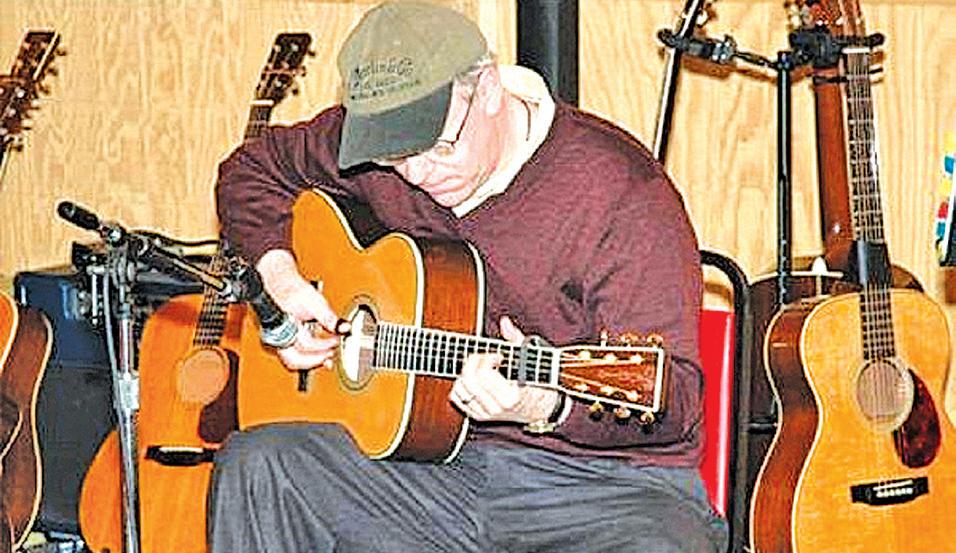







sons from Stefan Grossman’s Guitar Workshop,” McMeen said. “Later on, he heard my music and asked me to offer my own lessons myself through his workshop! That really encouraged me. Later, Shanachie Records, a major independent label, released two of my solo recordings, and I was off to the races.”
Those lessons had a major influence on his music, plus he learned to play Celtic music on his guitar which proved to be very melodic.
McMeen’s playing is characterized by melodic emphasis, economy and great beauty of sound. His natural voice-like phrasing and skill at ornamentation and improvisation create a musical flow that gives the listener the impression he is hearing the piece for the first time, each time it is played.
His improvisational approach to pieces creates an atmosphere of warm and personal immediacy. “Guitar Player Magazine” referred to his music as “drop-dead gor-


geous” in 1995.
After writing 16 guitar books, recording numerous albums and teaching guitar workshops, McMeen has become an internationally acclaimed and award-winning acoustic guitarist, who has been included in a “greatest acoustic guitarist” list. (He says that it’s nice to be on someone’s list, unless it’s for a hit or a tax audit.) He also has a YouTube channel where he posts informal guitar pieces and some instruction.
McMeen has written numerous books of guitar music for Mel Bay Publications, has given guitar workshops throughout the US, and produced recordings by other guitarists. His memoir, “Growing Up in God’s Country”, has been honored as a No. 1 new release on Amazon.
“I ran with it,” he said of his musical taste. “The CGDGAD guitar tuning really resonated with me, and has helped my career.”
The legendary Dale Evans was credited with inventing that tuning.
“If I hadn’t heard of it, I would have ended up sounding like everybody else,” McMeen said.
McMeen had done a lot of touring as a guitarist from 1998 through 2002. After a 22-year hiatus, he returned to the road and performs concerts selectively, primarily in the East. His last performance in Lewistown was in 2000 or 2001. “It would be fun to do another one,” he says. McMeen has lined up a Feb. 15 show with guitarist Steve Baughman, presented by the Mansion Concert Series in Harrisburg. That website is www.mansionconcert.org.
“Concerts are fun, because of the interplay with the audience,” McMeen added, “especially in a more intimate venue setting.”
He shows no signs of slowing down any time soon.
McMeen’s website is www.elmcmeen.com.
BY GREG WILLIAMS Sentinel reporter gwilliams@lewistownsentinel.com
MIDDLEBURG – David Rowe might spend much of his time at the Pennsylvania State Capitol in Harrisburg, but there is no question the state representative is a champion of the people.
Recently sworn in with other legislators in the House and Senate, Rowe, who represents the 85th legislative district, knows his constituents expect his focus remains far beyond Harrisburg.
The House Republicans’ new policy committee chair, the 2025-26 legislative session has a slate of demanding, wide-ranging issues. The role is that of a standard-bearer for the House GOP — take what’s being discussed in Harrisburg, share it through a conservative lens with constituents across the commonwealth, return to the Capitol with taxpayer input on wide-ranging issues.
“I am proud to represent the conservative values of the 85th district in Harrisburg,” Rowe said. “Among my priorities are advocating for life and for our Second Amendment rights; protecting parental rights in education; advocating for smaller government, lower taxes, and bringing an end to wasteful spend-
ing.
“The hard-working people of the 85th District must live within their means; and I believe state government should do the same,” Rowe added. “I have never voted for a tax increase and co-sponsored dozens of bills to cut taxes. I have voted against multiple bloated state budgets. I am a tireless advocate for limiting the size, scope, and growth of government so we can eliminate bureaucratic red tape and empower entrepreneurs and employers to thrive, creating lasting economic prosperity for all Pennsylvanians.”
The 85th legislative district consists of parts of Mifflin County with Decatur and Derry townships and Burnham Borough; parts of Juniata County with Fayette and Monroe townships; all of Snyder County; and part of Union County.
The policy committee chair is a leadership position within either House caucus. Its importance might be heightened for House Republicans, who are again in a minority position in the 203-member lower chamber. The majority split is temporarily tied at 101-101 after a western Pennsylvania Democrat fell ill and was unable to be sworn into office.
With the majority comes the power to dictate the legislative rules

serve those who elected him to office.
“I am honored to serve as the House Republican Caucus Policy Chairman,” Rowe said. “In this leadership role, I will advocate for common sense, pro-growth policies across the Commonwealth.
and agenda throughout the session in committees and on the chamber floor. A Policy Committee is a respite for the minority party, one legislative Republicans are only recently familiar with since they’ve been the majority in the House for 24 of the past 31 years and also in the Senate each year since 1994.
“The 85th District is one of the largest districts in the Commonwealth and as the only member of the House of Representatives who represents four counties, I make it a priority to spend as much time as I can travelling throughout the district to meet constituents,” Rowe said.
“By doing so, I learn more about the specific issues facing different parts of the district,” Rowe added. “In order to represent the people, I have to know the people and every day is an opportunity to get out and do just that.”
That means donating blood, visiting small business, fairs and fes-
tivals, engaging with as many folks in his district as possible. One of his long-standing platforms is to serve as a champion for small businesses.
“The Commonwealth of Pennsylvania is home to over a million small businesses who create close to three million jobs,” Rowe explained. That’s almost half the state’s private workforce.
“Small businesses are not just the backbone of Pennsylvania’s economy, but they are also the backbone of our communities,” Rowe added.
“Small business owners are the employers and job creators who keep our families local and help our friends and neighbors put food on their tables. Small business owners are among the first to support community events, sponsor youth sports leagues, and donate to local charitable efforts. We owe a debt of gratitude to these hard working entrepreneurs.”
He hopes his new role will provide him with additional opportunities to
“Pennsylvania continues to be outpaced by more business-friendly states as the Commonwealth has lost at least one congressional seat every decade for the last hundred years,” Rowe added. “With over 160,000 regulations and a permitting process that can take years to navigate, more and more Pennsylvanians are seek-
ing greener pastures in redder states. If we are tired of having to travel to Ohio, Florida, or North Carolina just to visit family, we must take an axe to the red tape and bureaucratic hurdles that stifle private sector growth. We must make Pennsylvania more affordable for working families and retired seniors.”
Rowe, 33, has represented the 85th Legislative District since winning a special election in August 2019. The 202526 session marks his third full term and fourth overall.
Rowe’s political career didn’t start long before
See Rowe / Page 46







Continued from Page 45
he joined the House.
In March 2018, he was appointed to fill a vacancy on the East Buffalo Township Board of Supervisors in Union County, his first time serving public office.
The now former House Republican policy chair, Rep. Josh Kail, who serves parts of Beaver and Washington counties, said Rowe’s energy, legislative creativity and moral “north star” are the right fit for the role.
“The best part about David, he’s one of those guys I don’t think quite realizes how good he is at this. He is a natural leader,” Kail told reporters before the recent inauguration. “He’ll grow into this role and I think we’ll watch him blossom. He has convictions. He’s not afraid to stand alone. You saw all of that on display his very first day in office.”
Rowe is just one of the local politicians who are champions of the people, through their line of work.
The others include:
Pennsylvania House of Representatives Rep. Kerry Benninghoff (171st District)
Benninghoff was first elected to the General Assembly in 1996. He represents the 171st state House district, which includes Armagh, Bratton, Brown, Granville, Menno,
Oliver, Union and Wayne townships and Juniata Terrace, Kistler, Lewistown, McVeytown and Newton Hamilton boroughs in Mifflin County as well as parts of Centre County.
For the 2025-26 legislative session, Benninghoff is serving as Republican chairman of the House Transportation Committee. He is also a member of the Gaming Oversight and Rules committees.
His resume in the House of Representatives includes service as Majority Leader, Majority Whip, Majority Policy Committee chairman, and Majority Chairman of both the Finance and State Government committees. He also founded and serves as chairman of the bipartisan Cancer Caucus.
According to his website, Benninghoff believes the government should improve the lives of those it serves, recognizing that every dollar the government spends was taken from someone who worked hard to earn it. He is passionate about cancer research and other healthcare initiatives, ensuring an educational system that gives our children a clear path to good-paying careers, being a voice for victims of crime, as well as standing up for seniors while building a better future for the Commonwealth of Pennsylvania.
Benninghoff believes taxes should be low and works hard to ensure local dollars are spent
See Rowe / Page 47













Continued from Page 46
wisely. He is a watchdog for government waste, a longtime advocate for greater transparency and supporter of government reform.
Prior to being elected to represent the 171st, Benninghoff worked in construction, cared for patients as a hospital orderly and served Centre County for two terms as county coroner.
Rep. Perry A. Stambaugh (86th District)
A farmer and rural ad-
vocate with lifelong ties to his community, Stambaugh owns and operates a 200-acre bicentennial family farm in Green Park, Perry County. Stambaugh, who serves all of Perry County and most of Juniata County, supports measures that will greatly increase rural residents’ access to high-speed Internet service and backs state constitutional reforms, such as implementing term limits, electing state appellate judges on a district (not statewide) basis, and eliminating property taxes to fund schools.
During the 2025-26 legislative session, Stambaugh was appointed to serve on the House Agriculture and Rural Affairs, Energy, Finance, and Transportation committees.
Before becoming state representative in 2021, Stambaugh spent his professional career as a rural and agricultural magazine editor on local, statewide, and national levels, notably with Pennsylvania Farmer magazine; Penn Lines magazine, published by the Pennsylvania Rural Electric Association; and RE Magazine, produced



by the National Rural Electric Cooperative Association.
An Eagle Scout, he is a member of the Perry County Farm Bureau Board of Directors, Perry County Bicentennial Committee, Perry County Chamber of Commerce, Perry County Friends of Scouting Breakfast Committee, Landisburg Lions Club, Madison Grange No. 2064, The Perry Historians, Washingtonburg Chapter of the Sons of the American Revolution, and Historical Society of Perry County.
Rich Irvin (81st
Rich Irvin was elected to the Pennsylvania House of Representatives on Nov. 4, 2014. He previously served as the Huntingdon County treasurer for 18 years. Irvin currently serves as the Republican chairman of the House Housing and Community Development Committee.
The 81st Legislative District includes parts of Huntingdon and Franklin counties.
Irvin is pro-life and believes in protecting every law-abiding citizen’s Second Amendment right. He also believes in less government, holding the
line on taxes, public pension reform for new hires, true property tax reform and supporting an educational approach that develops every child to their maximum academic potential.
He graduated from Juniata Valley High School and earned a Bachelor of Science degree in accounting from Indiana University of Pennsylvania.
Irvin is a longtime member and past president of the Huntingdon County United Way. He is also a board member of the Center for Com-
See Rowe / Page 48

Continued from Page 47
munity Action, a human service agency serving Huntingdon, Bedford and Fulton counties.
Pennsylvania Senate
Sen. Judy Ward (30th District)
Ward was first elected to represent the 30th district in the Pennsylvania Senate on Nov. 6, 2018, after serving two terms representing the interests of local communities in the Pennsylvania House of Representatives’ 80th District.
Ward is a registered nurse as well as a former small business owner, development professional and wellness coordinator for Ward Transport and Logistics.
In the Senate, Ward has authored new laws providing additional resources to support Pennsylvania farmers; allow temporary nurse aides hired during the COVID-19 emergency declaration to receive certification to continue working in the field; help community-based health centers better meet the needs of patients in underserved areas; provide a tax exemption for any improvements and new construction on blighted properties in deteriorated areas; strengthen penalties for assaults against healthcare practitioners and technicians; protect victims of domestic violence; and expand Penn-
sylvanians’ access to psychology services.
She also led the fight in the General Assembly to provide transparency and accountability for Pharmacy Benefit Managers, require insurance companies to cover medications and treatments prescribed to patients facing Stage IV metastatic cancer and expand fundraising options for local charities dedicated to helping individuals who have cancer or developmental disabilities.
Ward serves as chair of the Senate Transportation Committee, a leadership role that allows her to oversee and advance Pennsylvania’s multimodal transportation infrastructure. This committee focuses on critical issues such as the maintenance of roads and bridges, public transit expansion, and the modernization of airports, ports and railways.
She also serves as a member of the following committees: Aging and Youth (Vice Chair), Health and Human Services, State Government, Institutional Sustainability and Innovation, Rules and Executive Nominations and Policy.
Sen. Lynda Schlegel Culver (27th District)
State Sen. Lynda Schlegel Culver was elected to serve the residents of the 27th District, which includes Snyder County along with Columbia, Luzerne, Montour and Northumberland counties, in a special election in Jan-
uary 2023.
Schlegel Culver was previously elected to serve seven terms representing the people in the 108th District in the state House of Representatives.
Schlegel Culver is a lifelong resident of Northumberland County and has dedicated her life to serving others. She served for more than 20 years as the staff leader in the office of former state Rep. Merle Phillips. She learned during that time about the inner workings of state and local government, while she simultaneously provided timely and reliable constituent services to residents who turned to the office for help.
Schlegel Culver has extended her dedication to service beyond her work as a state representative and senator. She also offers her time and talents to many local community organizations, including the Early Learning Investment Committee, Greater Susquehanna Valley Chamber of Commerce and Central PA Chamber of Commerce, the Community Giving Foundation, Everyone’s Playground Advisory Council and the United Way of Pennsylvania.
She also serves as a member of Central Susquehanna Opportunities, Inc. (CSO) Board of Directors and the Pennsylvania Higher Education Assistance Agency (PHEAA) Board of Directors.
Congress Rep. John Joyce (13th District)
Congressman John Joyce, MD, has represented Pennsylvania’s 13th Congressional District in the U.S. House of Representatives since January 2019.
Joyce’s district contains all of Mifflin, Juniata, Huntingdon and Perry Counties as well as Adams, Bedford, Blair, Cambria, Franklin and Fulton counties.
In Congress, Joyce serves as a member of the House Committee on Energy and Commerce and as the Vice-Chair of the House GOP Doctor’s Caucus.
Since arriving on Capitol Hill, Joyce has prioritized and championed legislation and initiatives focused on delivering affordable, quality healthcare in rural communities, lowering energy prices, and expanding access to high-speed Internet across southcentral Pennsylvania.
After graduating from Bishop Guilfoyle High School and attending Penn State Altoona, Joyce received his undergraduate degree with honors from Penn State University Park in 1979 and his Doctor of Medicine from Temple University in 1983 before continuing his medical training at Johns Hopkins Hospital in Baltimore and with the U.S. Navy in Portsmouth, Va.
A fellow in the American College of Physicians and the American Acad-
emy of Dermatology, Joyce and his wife, Dr. Alice Plummer, Joyce established Altoona Dermatology Associates in 1991, and for over 25 years, the Joyces have cared for families across Central Pennsylvania, serving patients from all ten counties in the 13th Congressional District.
Rep. Glenn “GT” Thompson (15th District)
A life-long resident of Howard, Centre County, Congressman Glenn “GT” Thompson represents the 15th District in the U.S. House of Representatives.
Prior to being elected to Pennsylvania’s geographically largest congressional district, Thompson spent 28 years as a therapist, rehabilitation services manager and a licensed nursing home administrator. Through his professional experiences, Thompson has touched the lives of thousands of individuals facing life-altering conditions. As a result, he has learned firsthand the importance of access to quality healthcare and has become a strong advocate
for increased access, affordability, quality of care, and patient choice.
An Eagle Scout and 30-plus year veteran of the Juniata Valley Council Boy Scouts of America, Thompson has served as Scoutmaster, Council executive board member and council president, enriching the lives of youth throughout Central Pennsylvania.
Thompson is also a former member of the Bald Eagle Area School Board, past vice-chair of the Private Industry Council of the Central Corridor, and a former Workforce Investment Board member. Because of these experiences, he was appointed to the House Committee on Education and Workforce in 2009.
For more than a decade, Thompson has served as Co-Chairman of the bipartisan Congressional Career and Technical Education Caucus. In the 115th Congress, Thompson introduced the Career and Technical Education for the 21st Century Act, which passed the House and Senate unanimously and was signed into law by President Donald Trump.
From left, front, Juniata High School Football, 2024 District 6 Champions; Casa Grande, Arizona Chief of Police Mark McCrory; middle, Lewistown Area High School Girls’ Basketball, 1998 PIAA State Champions; Carter Smith, 2024 PIAA Cross Country State Champion; Hershey Bears, 2024 Calder Cup Champions; back, Juniata College Women’s Volleyball, 2024 National Champions.

